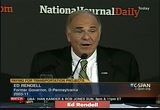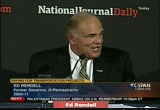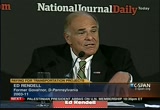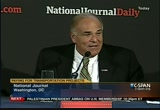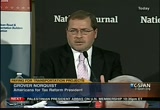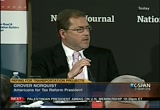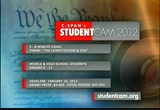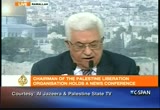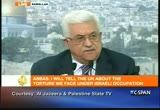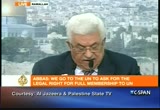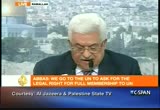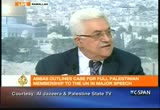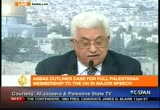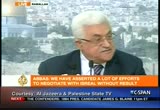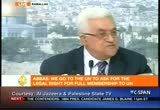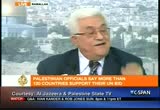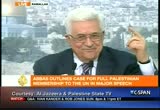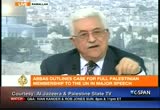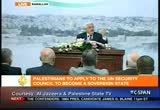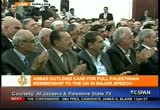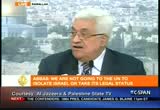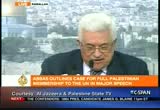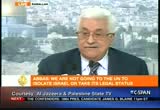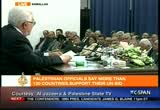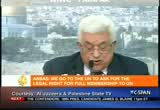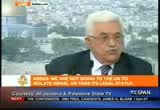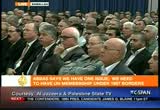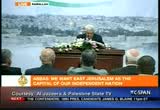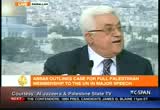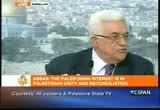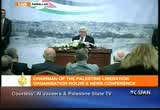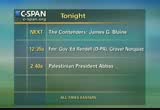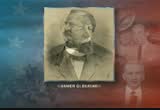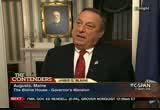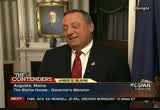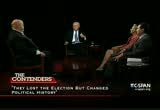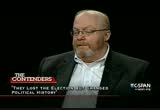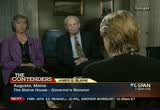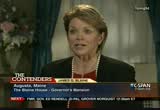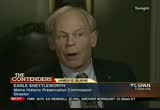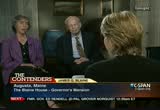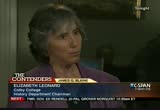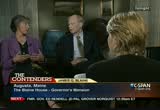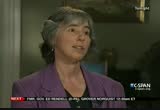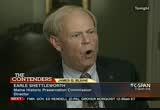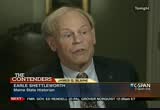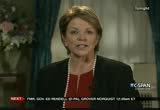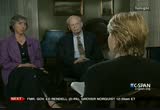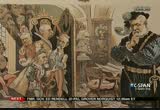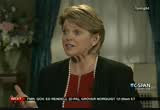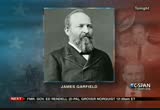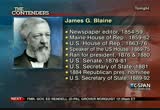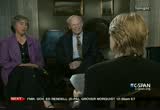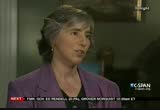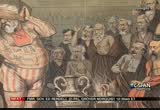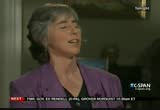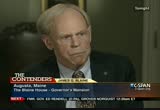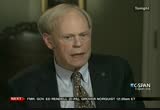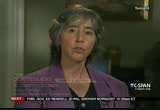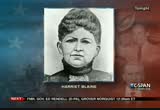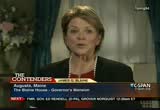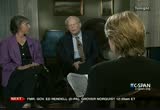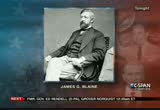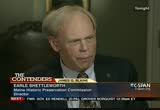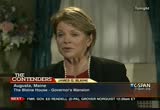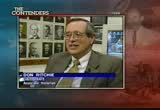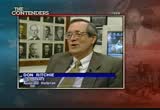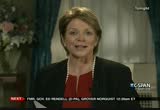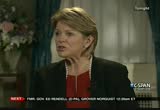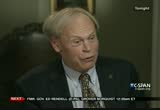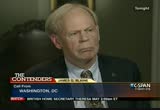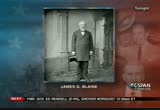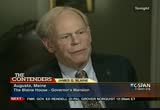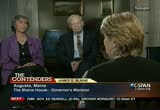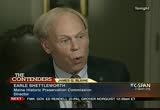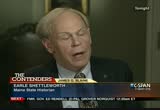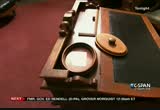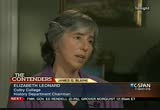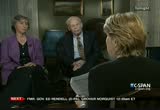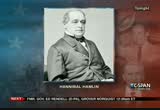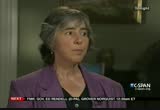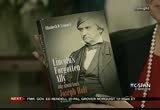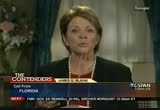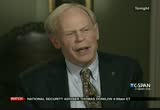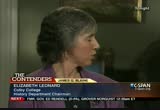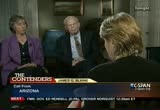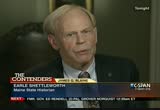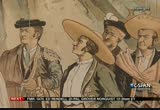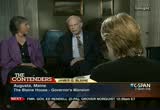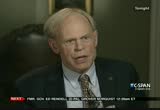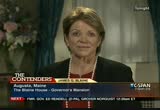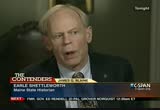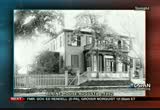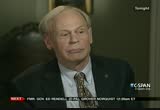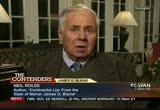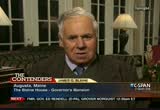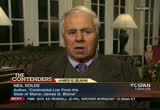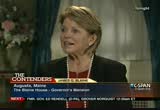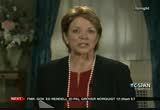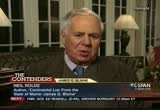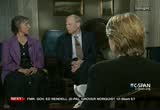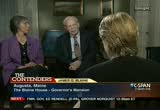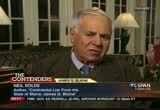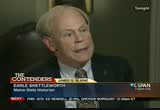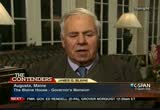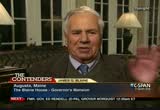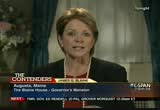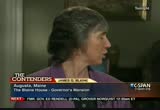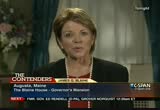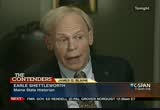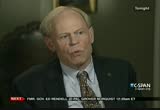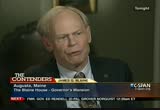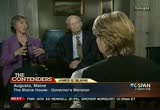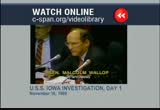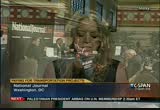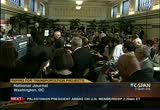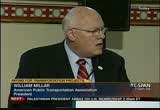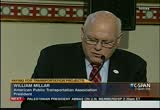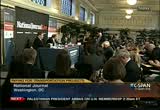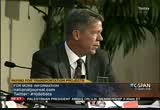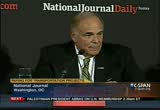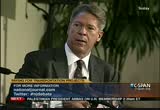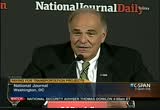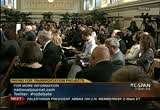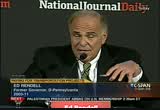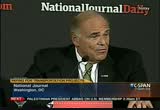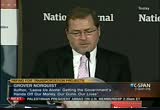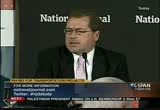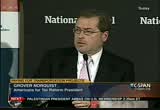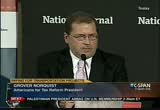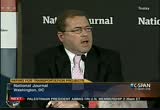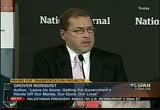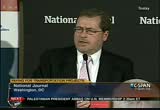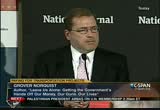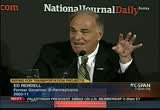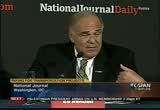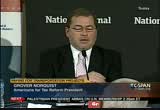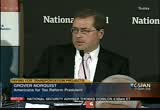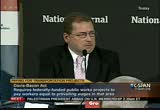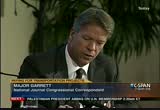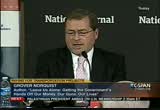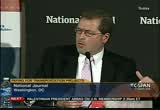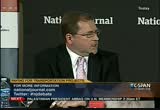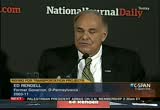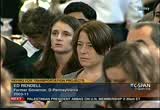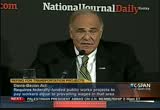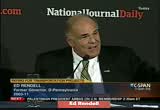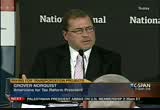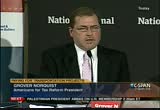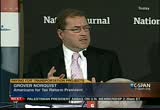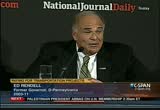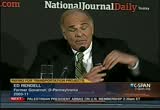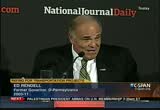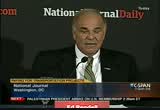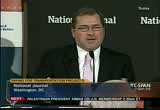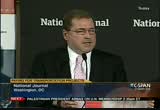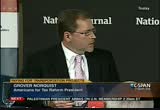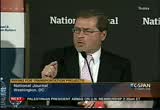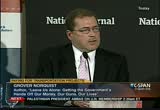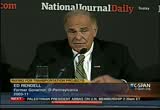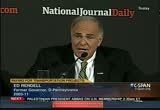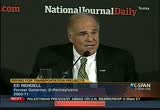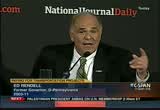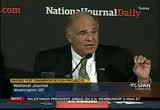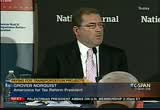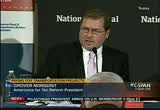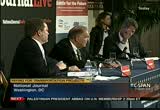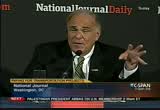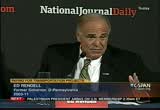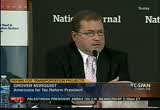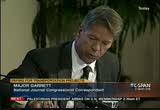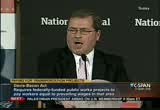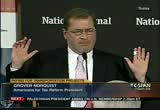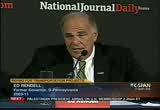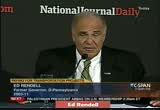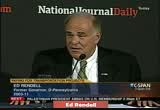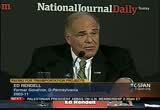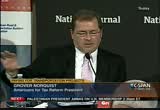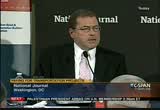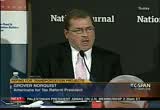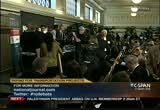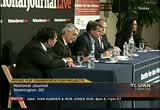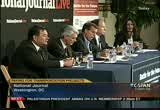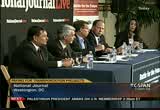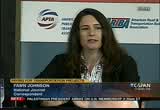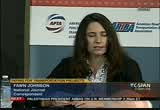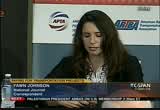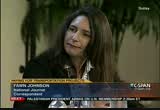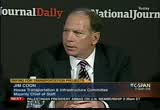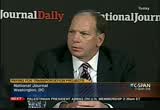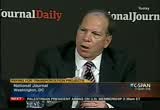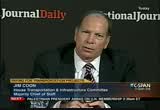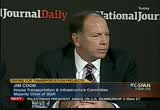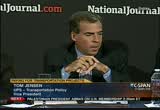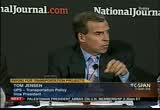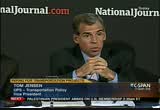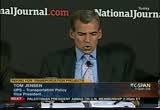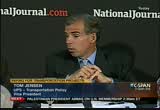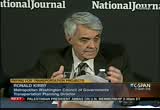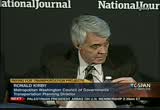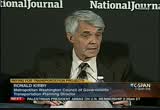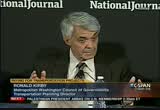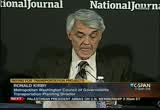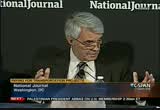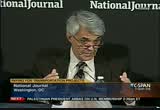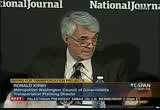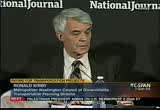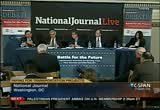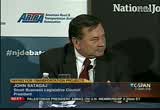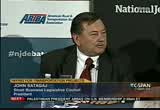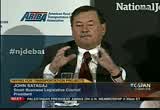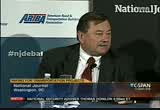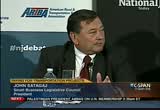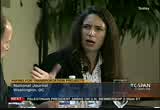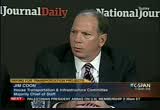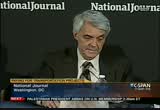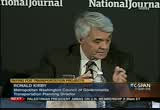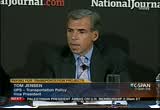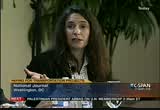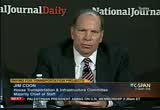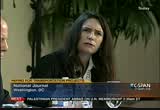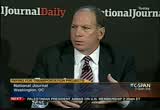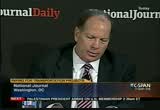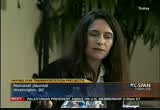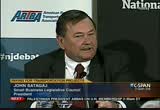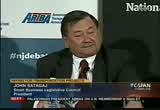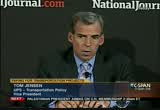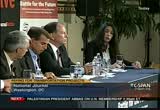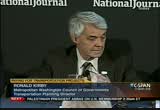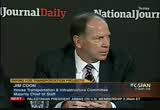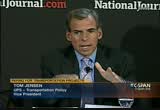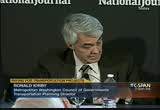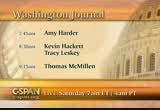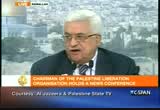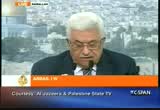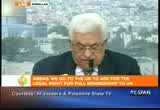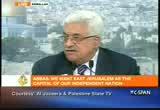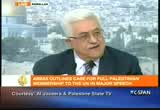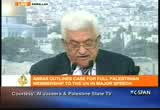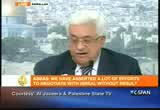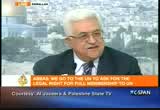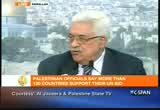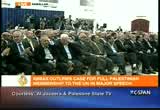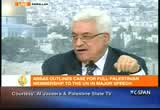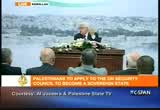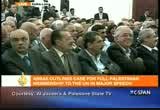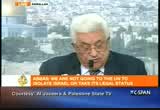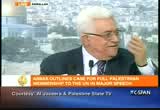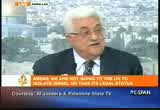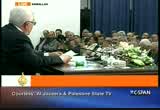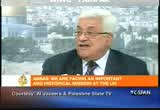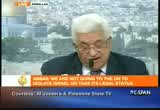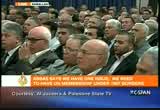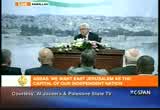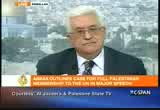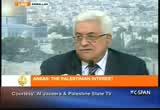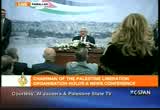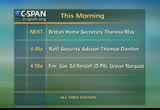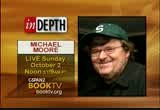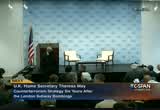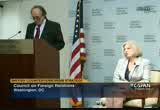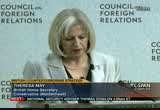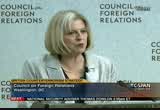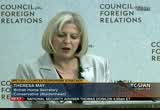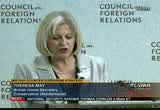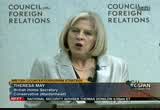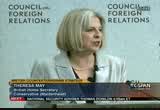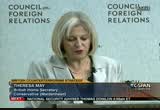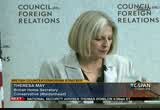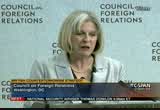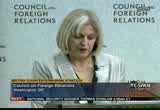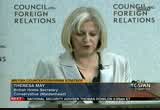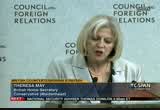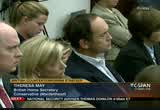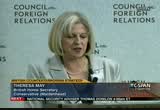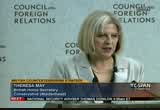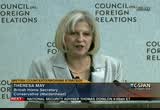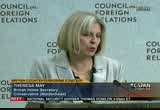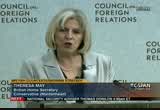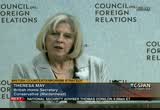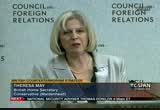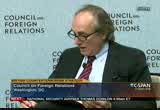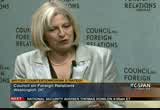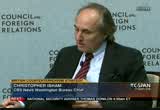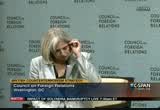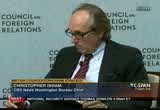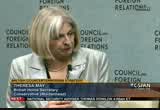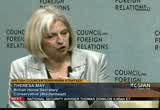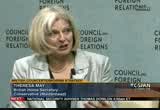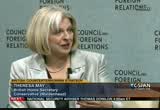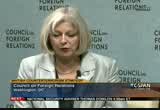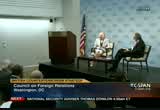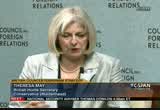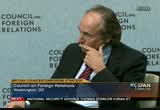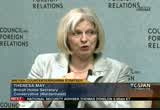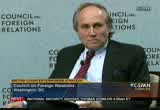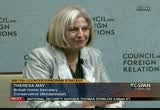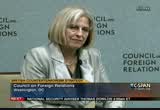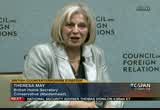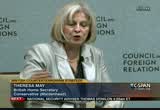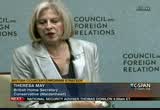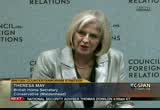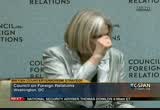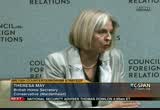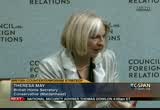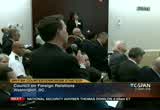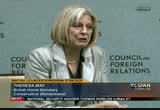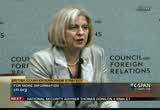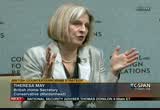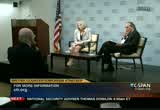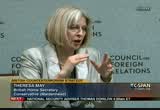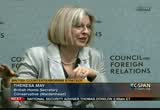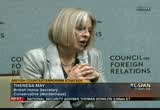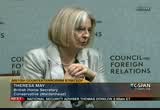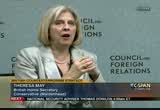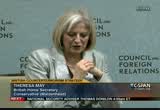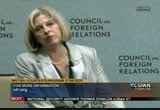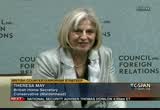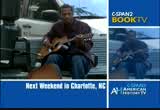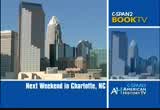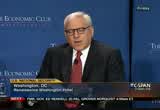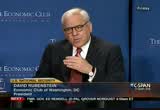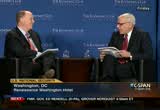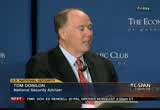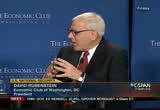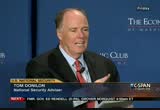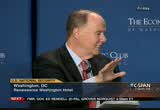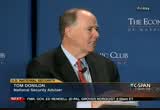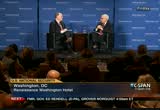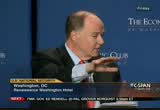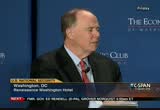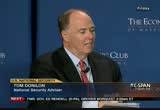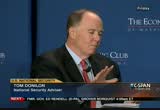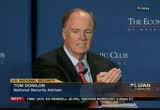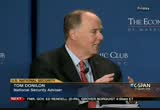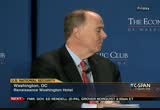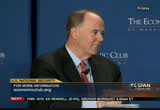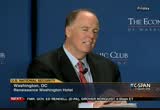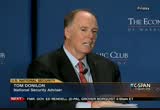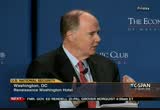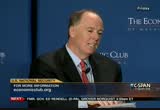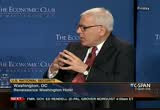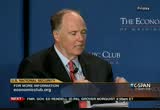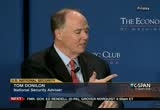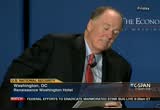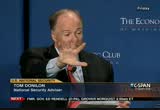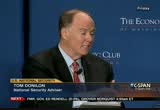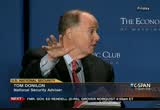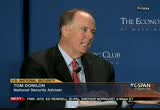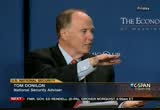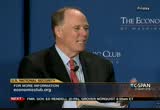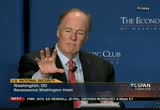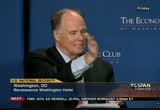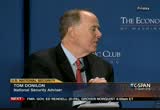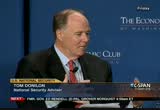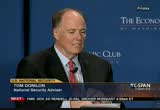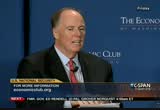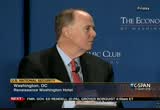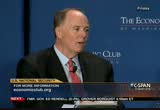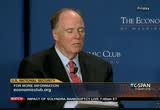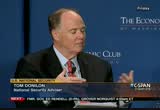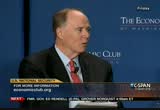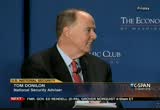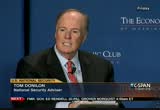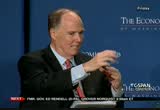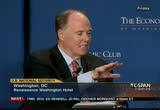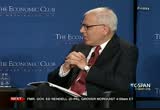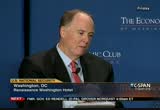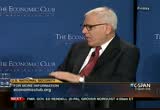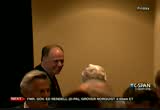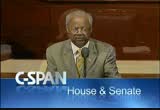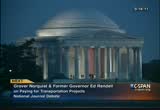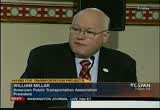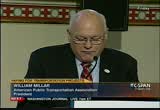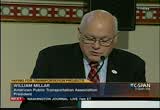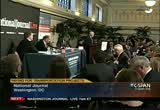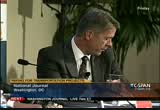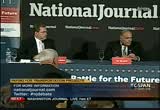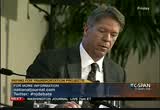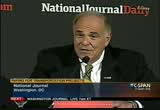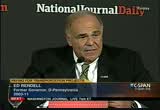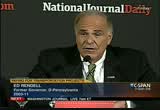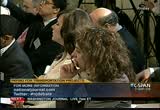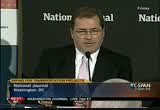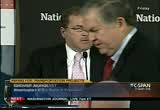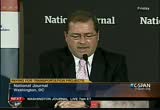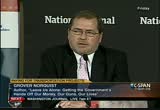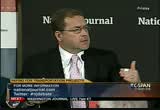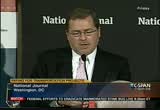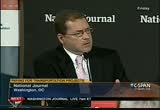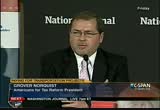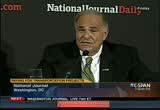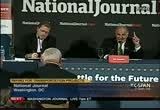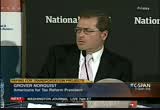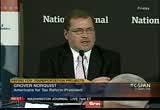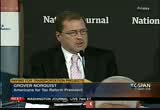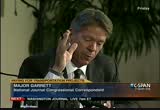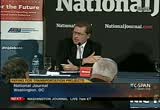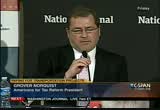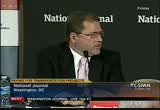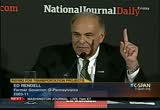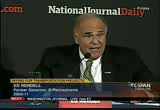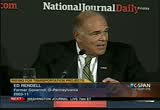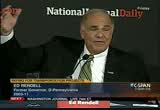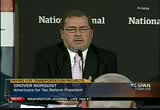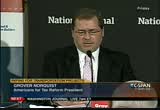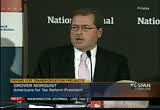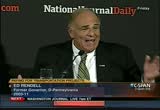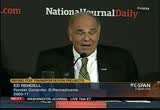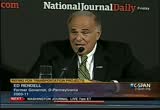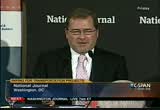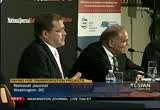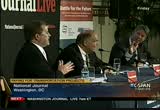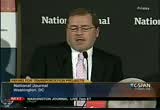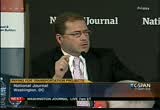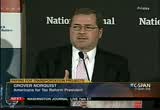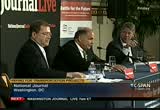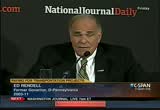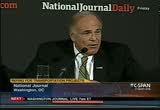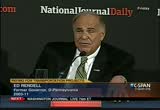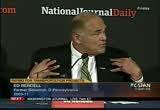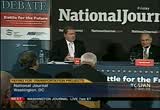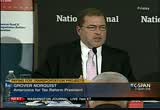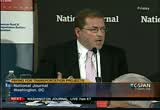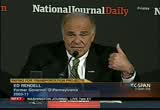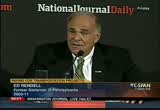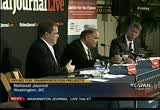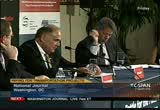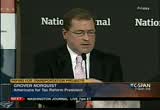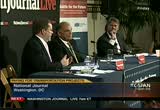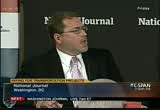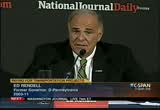tv Politics Public Policy Today CSPAN September 16, 2011 10:30pm-6:00am EDT
10:30 pm
commission. they control the white-collar patronage. would we love to have that $12.8 billion back. he is absolutely right about that aspect of that. user fees are more easy to understand especially when they see the benefit of them than general taxes. we do need to open up tolling on roads that are nontolled. the people against it say, well, why would people pay twice? we paid when we built it the first time. if you buy a car for $45,000. you put all your live savings, you pay once but you pay every year to maintain it. you wouldn't stop to put money into the car. if you didn't, it would break
10:31 pm
down and it wouldn't work anymore. we should lift the federal restriction on tolling. if they want to take on that decision and won't explain it to the taxpayers, that's their risk. in terms of separating out transit from the trust fund, transit because it is -- it's actually not so exclusively in big cities as people would suggest. in pennsylvania we have 39 mass transit systems and some of them are in counties with less than 10,000 people. and bus lines are the only way that working people can get to work. we think of mass transit as subways. but it's more than just subways and metro rail lines. it's buses as well. if you separate it out then it would become a step child. then it would lose any chance
10:32 pm
that it would get significant funding. lastly in terms of deinvolving to the states. if you did that, took the federal gas tax money away and so the states could do it on their own, tell me what governor or what legislature in today's atmosphere is going to to impose a state tax on gasoline? that just unrealistic. and lastly, overif grover's aware of this. but we do have devolution. nose of the transportation money that comes out in america, the federal money comes in block grants to the states. the states have the power to decide where and how that money gets spent. there are things called m.p.o. and r.p.o.'s rural planning organizes and they sit with the doc representations and they make determinations on what priorities they want to spend
10:33 pm
those transportation dollars. there is state control and there's regional and local control of how those federal tax dollars get spent. >> i'll give you the last word. >> mike is trying to take some of those restrictions off. i think they're minor and good first steps. they don't not exist and they've been there for 30, 40 years. look, we need roads, we need more roads. we need bridges. and let me suggest that you do not have a problem with tay payers. you have a problem with free riders all of those groups. and the governor just talked about mass transit, set buses aside because those clearly can be done privately. >> grover, absolutely not. you can't have a bus system privately unsubsidied. we can take washington to boston out of amtrak and make a profit out of it. there's no profit in
10:34 pm
mississippi to run a train system. >> the challenge we have is the people in the past have gone to voters and said if you raise taxes, we'll build roads and roads were not built sometimes because the environmentalist said we're going to cut through all the red tape and we're going to say we can build these shovel-ready roads right away. and the democrats in congress said not a chance. their constituency that elected them is not the people who wanted to drive to work but the people were the environmentalist groups. they said until you get those people out of the room, you're going to have a hard time convincing people that you really understood the roads. that's an interesting project but it is not the roads that
10:35 pm
constituents are talking about. they'll be lots of support for that if the onion poll is correct. but when you take roads and you entangle it in other spending programs or you allow governor warner or tim kaine to raise taxes in the name of roads and spend it on everything else, ok, and then you wonder why taxpayers don't trust you when you come back for the 57th time, charlie brown, trust me ilede hold the football. no, no,, no strip the roads out. break the unholy alliances, political alliances that the road builders have built with the interest and the environmentalists and with the guys that put all these rules and restrictions on how you build roads and what you can do. and them you have a different prouget. then let's go out and argue with those wasteful government
10:36 pm
programs and have roads built rather than the other. i tend to think we win that faster, better, at the state level but i'm willing to work with you guys a the federal level. but don't carry the political interest of a dudsen other groups and wonder why it slows you down. >> thank you very much for your time. thank you for the audience. thank you, c-span. thank you for the questions. please stay here for our second panel which will continue this conversation. but i thank you for your attendant dance. it's been a good time. thanks. >> on this constitution day, a reminder that our new student cam competition is on the way. the topic "the constitution and you" opened to middle and high school students. $50,000 in prizes. the deadline for submission is in january. but you can get all the detail now at studentcam.org.
10:37 pm
next mahmoud ahmadinejad announces in ramallah that he'll formerly submit a bid for full u.n. membership for paless stein when he speaks to the u.n. general assembly next week. the u.n. said it will veto the palestinian resolution and has urged palestine and israel to achieve a two-state solution. this 25-minute program is courtesy of al jazeera english and palestine state tv. >> thank you. in the name of allah, the muslim brothers and sisters, sons and daughters of the palestinian people and outside the palestinian territories, i am conveying my application before -- before going to the
10:38 pm
united nations to convey to the international organize and to tell them about -- organization and to tell them about the torture and the bad, bad backgrounds that under generation and generations and in the refugee camps were deprived of their nation. they have their rights violated every day, in front of the world every day. they protect the people's rights in self-determination and to prevent the occupation by force. the tragedy all our people were born when our nation was born as well. hundreds of resolutions and
10:39 pm
recommendations issued by the city council. but these resolutions are in vain. we demand full, legal right which is the full membership of the palestinian state in this organization. we convey with us and we carry with us the convenient delegation the pain of our people to achieve this and to put an end to the torture and we enjoy our rights, we enjoy our freedom and independence and palestinians take on the borders on the 4th of june 1967 with east jerusalem as the capital of our nation. our efforts, our continuous efforts so as to reach
10:40 pm
negotiations absolution to end the occupation and to lead to the establishment of an independent palestinian state is now reaching of deadlock because of the politicians of the israeli government that are trajecting, committed negotiations on the business of the international legal resolutions with p.n.o. it's a policy of settlements and the jewish approach to israel will never leave the solution of the two countries based on the 1967 borders. i go to united nations with a big hope to have this membership. and this will never touch the
10:41 pm
p.l.o. being the legal only of the palestinian people and which will stay and its role will be there until we have our full and comprehensive independence. the role of the p.l.o. will be there until we have full independence and to have and to have the issue of solving all the problems and issues of refugees. [applause] >> and of course, as you know, the p.l.o. is the higher and supreme power of the palestinian people. and the palestinian national authority is part of the p.l.o. and is established with the
10:42 pm
support of the p.l.o. that's why everyone who asks about the p.l.o. and how we lose the p.l.o., i think it's not a proper point. the p.l.o. will be there, not until we reach absolution but until the imply mentation of this solution. and amongst the issue that we need to be implemented and were to be implemented, the issue of refugees. sisters and brothers, along the last year we have expressed our readiness to take part in serious negotiations and responded to the international mediation and efforts but we received nothing from the sealy government except wasting time and imposing facts on the
10:43 pm
ground and turn into negotiations for the sake of negotiations. and during the last two years, we have expressed and exerted a lot of purpose to establish the obstruction of our country. we witnessed the success of our efforts and how are we deserve independence, that's why. one bank report issued this month has praised the jobs and efforts by the p.a. and it gives them domain especially in the security, jus us the and economic revenue -- us the tiss and the economic revenue. and the report pray the achievement and consider achievement as a real progress -- a real progress that goes
10:44 pm
beyond the opposition in the middle east, north africa and elsewhere. [applause] >> this is one of the most important reasons that -- >> make us ready to talk about september. and the effort from september. and we said for three reasons. but first obama said i need to see a palestinian state in next september, with full membership. second the quartet said it's a must for start negotiations in september and to end in september, we have said that we are committing ourselves to establish palestinian authority agencies. we any about that can deserve a
10:45 pm
national stage and dependency. then we have the world's greatest reporter. no report from an arab agency. it is better than the other half. a review of the palestinian state this year and the numbers recognized goes beyond 126 countries. it's another indication that says how the world, the majority of the world 2/3 of the world recognized the the percentage. the other third recognizable, is that the one to give us. and embassy. we are the only people
10:46 pm
worldwide that is still under occupation. there's no violence or area isolated or wrought. everyone had the season of the united states nation except other people. a democratic state but guarantees individual freedom, the collective freedom. the commitment of the human right. it brings a bit of the transparency and the dominance of below. we have everything. democracy, freedom, transparency. we have everything. that's why we don't think that anyone will say our people wants to. >> still we have one issue.
10:47 pm
still we have one issue. >> we need to have a full membership between the borders of the 1976. see what we can termination. border, security settlelele ments. -- settlements. and the prisoners the israeli prisons. because at that time there would be be more strizzners if they -- -- more president and we always consider them at the top of our demands.
10:48 pm
but all indications are the cases ha will be attacked and more. i am saying, a lot of the brothers are the same. it's john paul. it's a luxrouse move. >> and we're talking to one 93 done fris and you consider it and you call it. >> that's why. i said this is not right. we also have to understand we're not going there to bring independence. we will come back to negotiate the other issues our immans, we
10:49 pm
need to have a full membership in the united nations. but, i hope not to maximize things and we say that we are going back with the independence. no, no. this is not the case. we need to pay attention. we need to be care. there were for nonsense, aye not playing. they were going to bring independence are not right as well. either that's why we need to deal with matters as they are, they are. we need to work within logic. we're going to the united nations to put the world before its responsibilities with an olive branch in our hand. the olive branch that is carried by the late -- yasser
10:50 pm
arafat 36 years ago. >> and not as some people say, you know, to ice, to late israel or to take the legal faces of the country. no, we're going to do that. israel, israel is there not. one can take its legal stages of the project. no one can isolate. but we need to isolate. and we need to take the legal status of occupation. not of israel. >> what we need is to put an end to the occupation and take the legal service out of the occupation. the main -- pain that we start
10:51 pm
in every day are strented by destroig and tension and destroying houses and the aggression of the settlers, they would burn more and then they would train docks, am i right? do you train docks to attack us. bigs to stay in the last. they are facing us with three things. the settlers, the sletters. the docks that are well trained . what is this? and of course, in addition to the staring sun. these are the new inventions of
10:52 pm
the israeli side. to face the citizens when they are going to the united nations. this suffering can come out of my heads. and we need to not deprive her and we need to have legal rights because there's a lot of inthe scurent in the area. this aggression reminds us today. what happened? before that they received mass kers and others and others, but today and today we all remember in 1982 the massacre, where we lost thousands of palestinians. we are there for massacre.
10:53 pm
63 years for massacre. it's a triumph to feel rested and to be gone. >> do -- supported by the win of our people, our people of -- love for these nations and a lot to through through in a good way and we also got to the u.n. [applause] without those markers we could never rige reach those points and our prisoners. and supported by our arab and islamic words and the whole words -- oh, please. a lot of people deserve our
10:54 pm
support, people from africa, for our nation. from everywhere. people are supporting. and a lot of have come here to say, we recognize the your ability. but i'm thousands of miles away from us. we are facing an important and historic mission that's not a picnic. we cannot minimize the obstacles and kill an israeli to reach our objectment and our efforts. if it's an success, we need to know that the next day the palestinian day at the end of the night, our struggle will continue and the mission, the next mission will be also difficult. but at least we got the independence. we got so in the recognition of the world. and we then -- they know our
10:55 pm
land is ox pide and it's not a dispuented last. also you know what that would fit, that's why the build and build, wherever they can reach they will build. the more our soldiers go, then we will build. this is our sort of borders. our borders is where we put our faith. our faith is our border. 1967, settlelement is not legal. so the establishment of the state, of israel. i go see if she's up the vat. whatever the difficults are there, it's negotiation between two states.
10:56 pm
on passion one. i'm talking very frankly. i promise you that the result that would be achieved, will be given to our institutions to take the proper decision. goes to the united states nations. ss not the pal tigses tragedy. it's part of the palestinian's strategy with the record. first to our people here and outside in the camps and everywhere as we add to our principal and i called upon everyone to commit himself and to abide by the values of the
10:57 pm
struggle. and the value of not given their a protection. our legal struggle and conflict to have an interest resolution but reck nices our stay with jerls -- jerleds. today and this day, well, we're face ang important state and people have proved that i was able to overcome such a test, unified on the ground supporter by the political powers and to stress that he is a peaceful people and nation inside and outside. all the movements should be peaceful. because israeli intelligence said, we never heard the world peaceful. i am now saying peaceful.
10:58 pm
so, we need to have moving in a peaceful way. to avoid as much as we can to be tried and they want us to be. we also read -- we need to get rid of this peace group. we need to go back as to the worse this. i hope every palestinian female and male that were are going out everywhere. don't give them that chance. don't give them their protection. nothing more. no -- now any violation of if peaceful noment for us will hate us and will go
10:59 pm
uninterrupted. but when you destroy our efforts and that will sh led lights of the positive points. the palestinian interest puts an end to division that happens. in 2007 we will continue. we will go on. we will exert every possible effort to achieve the reconciliation that we consider great. what we have done -- we will continue. some differences, the unity of the palestinians, the unity of the land is the most power powerful weapon we have.
11:00 pm
we need to get to this division. and here as part of our jeans. thanks or the arab countries and all the agencies that support us and and our supporters support us in our fullwe're going to the security council. [applause] you cannot believe that. they use it down. -- i am sure you do not believe that. our decision that we said to
11:01 pm
everyone -- we are going to the security council. after my speech and the general assembly, i will hand in the request to the u.n. secretary- general to be given to the head of the security council. our option is the security council. regarding the other options, we have no decisions until now. we have a lot of options but the decisions up to now, though. in the name of allah the almighty, the koran says to work and work hard. [applause] >> next, the c-span the series "the contenders," on key figures who ran for president and lost, but changed political history.
11:02 pm
from maine, the life of james g. blaine. then former pennsylvania gov. ed rendell and grover norquist talk about talking about -- tax levels. after that, palestinian president ahmad abbas -- modest loss -- palestinian president abbas. and now, james g. blaine in the to the contenders'." -- and "the contenders." ♪ ♪ ♪ ♪
11:03 pm
>> you are looking at some of the images from the 1884 presidential election and listening to songs in support of the republican candidate, james g. blaine. and his running mate, john logan. we are live from the blaine house. the home of james g. blaine and the official residence -- residents of the maine governor. we are here with the sitting governor. this house is filled with blaine memorabilia. do you have a sense of the man while you are here? >> absolutely. maine.e to name welcome to the house. mr. blaine is here every day and we hear his spirit every evening. we always say goodnight to him. >> the house was built many years ago. and what have you come to learn about the man by living in his house? >> he not only was a very
11:04 pm
strong supporter and founder of the republican party in maine, but also a national leader and he started maine on its course to where we are now. he was very influential in the state government and federal government. he was a powerhouse. a big tank powerhouse on a massive scale. -- a big-time power house. on a national scale. i am very honored to be a stored -- to stay here and be a steward of the house. >> you probably have the best commute in america because this is right across the street from the capitol building. >> that's correct. had been asking the but a tunnel under the road. >> there's maybe better air- conditioning. we are pleased to be here tonight to learn more about james g. blaine. for many people, he has faded into the pages of history but tonight we will learn about the
11:05 pm
republican members of the state and your state. thank you for having us. >> welcome to the state of maine and to the people's house. >> we will be life for the next hour and half and learning more about james g. blaine's america and the republican party. he was so influential bringing to the state. two guests are waiting for me in the reception room and they will be my guess throughout the program. while we are getting set up in their, i will show you a clip from a round table discussion that we hosted. they discuss james g. blaine and his time. we will see you in a minute or so. >> 1884 against cleveland. ironically, in 1876, it was blaine who prevented ulysses grant from making a comeback and winning a third term. >> besides being secretary of state for james garfield and
11:06 pm
chester arthur -- >> he was secretary of state under three presidents. >> what else did he do? was elected to other office? >> he was a speaker of the house. he was a governor. he was an iron will that speaker. >> he changed some of the rules in the house. the speakers are always changing the rules somewhat to their advantage is. a very capable guy. >> this was after the civil war when congress was much more central, much more potent than it had been. their reaction against the strong executive said in. -- sets in. to be the secret -- the speaker of the house, to be a power in congress meant a lot more fun than it would today. >> do you have anything to say? >> what do you think would have happened if he won?
11:07 pm
>> put it this way -- i think he would be regarded as the best president between lincoln and tr. >> why? >> he was assertive, he had intellectual capacity. he had a lot of talent. i think that once he had actually achieved it -- people are consumed. people lost after the -- lust after the president's. -- presidency. this is a distorted malignancy that they suffer from. if they survive it and they win the office. i think that belaying is someone like clay. they have a great deal uncommon. -- i think that baline someone like clay. that a great deal in common. i think blaine what had distinguished himself. >> as promised, we are in the reception room. let me introduce you to our
11:08 pm
guests. we're joined by 80 state historian and the chair of the history department at colby college. -- we are joined by the state historian. earl shettleworth. and elizabeth leonard is a professor of history. let me have you set the stage for us, the mid 1880's in america. we are 20 years passed the civil war. what was the country like going into this election in which he was a contender? >> we are a long way past the civil war in many ways and it is indicated by the fact that there will be a democratic president that is elected that year and that would have been unthinkable just a short time before that. that is one thing. >> why was it unthinkable? >> because the republicans were the winners of the war and they had controlled the governor for a long time cost the government for a long time. it felt -- they had controlled the government for a long time. it feels like hand off to the south to let the democrats come into the white house. >> talk to me about north and south america -- parts of the
11:09 pm
country come excuse me. and the difference in the economies. >> the civil war crushed economy in the south so one of the goals of reconstruction was to get the south up and running again but this is on the southern terms. -- on the northern the terms. >> james g. blaine was a powerhouse by 1884. main had not been in the union all that long. >> maine had been originally part of massachusetts since the colonial times and became a state in 1820. we went into the union as a 23rd state. we were part of the missouri compromise. missouri was late, maine was freed. by the post civil war, maine had initially suffered a bit of a setback during the civil war which sent about 70,000 men to the war. 10,000 had been lost.
11:10 pm
our population in the decade of the 1860's did not grow. by 1884, maine was getting back on its feet. maine has had a wonderful resource based industries and so we had ice, granite, lumber, we also had textiles, shoes. blaine was a part and a beneficiary of this very robust economy at the time. >> he contended against democrat grover cleveland who won. the republican party that nominated him, this was his third try for the white house, he was unsuccessful the two times earlier. what was the key to getting the nomination in 1884? >> persistence is part of this. he continued to try and he was recognized as a leading figure
11:11 pm
in the republican party, there is no question. one of his many nicknames was mr. republican and he was certainly a leading figure. >> he had some great enemies at the time who tried to deny him the nomination. explain the spit in -- this split in the republican party. >> there was a group of moderates called the mugwumps. they were the intelligence tip from boston,ce the osia philadelphia, new york. they were folks that believed that blaine was a very corrupt individual. you think of henry adams who wrote "democracy.' a dark figure is modeled upon the land. -- upon blaine. he did have very strong enemies
11:12 pm
even within his party. >> ultimately, this is a very close election. will you tell me about the result? >> he loses by 30 or 40 votes. >> the actual vote, he loses by 25,000 votes nationally. the key to the loss is the loss of new york state. about 1000 votes. >> new york state was the place where theodore roosevelt was beginning to make his presence known. was he an influence? >> no, he was considered a mugwump, one of the liberals. that is a trend that began his career in that direction at least into the 1890's. >> what is interesting about the 1884 election is that was highly personal. >> highly personal. in a way we do not think 19th century politics were. we usually don't think that they were but they were very personal, especially starting with andrew jackson. this is really a fight about
11:13 pm
blaine as a corrupt politician and cleveland had a child out of wedlock somewhere in the country. they are slinging nasty mud at each other. >> there are two phrases that most high school students study in their high school books that are from this campaign, the first is rome, romanism, and rebellion. -- rum, romanism, and rebellion. where did this come from? >> that was a minister and about a week before the election, he gave a talk that blaine was party to in which he denounced the democratic party as the party of rum, romanism, and rebellion. rome, -- rum, prohibition, romanism, the catholic church. and rebellion, the south. this is one of the phrases that was carried by telegraph across the country, and apparently contributed to blaine's loss. >> he did not denounce it. many people thought that he had said it.
11:14 pm
-- yes. >> it is just that he did not denounce it. >> also the new york catholic vote. >> was there an anti catholic mood in the country in some sectors? >> certainly, even still. there had been from the 1840's when the irish were emigrating in large numbers. also the prohibitionists and the temperance movement. >> the second phrase is -- you alluded to this on grover cleveland's side. mom, mom, where's my pop? he's gone to the white house, ha, ha, ha. what was that all about? >> that is about this accusation that cleveland had a child out of wedlock somewhere and in fact that he was not the moral upstanding man that could be set to challenge the corrupt and devious blaine.
11:15 pm
>> he chose a tactic which i read which was not to deny. >> also to pay child support, pay for the child at the orphanage. >> a lesson perhaps for modern politicians. [laughter] >> i have a book here. the newspapers were reporting on him at the time. this is the book that james g. blaine wrote which helped to set the stage for his campaign. this was very well received. >> the first volume he began to write it in 1881. shortly after he was secretary of state for the first time. the first volume was published in 1884, maybe just in time for the campaign. the second volume did not appear until 1886. however, it was a highly popular two-volume best seller. it apparently sold tens of thousands of copies. it was his personal account of his experiences in washington
11:16 pm
from the time of the civil war to the early 1880's. >> he made a lot of money from this. >> he did indeed. >> was he able to buy his house? >> yes, i think it contributed to it. not this house. this goes back much earlier. in 1862, which is a critical year for him. he is speaker of the maine house of representatives and at the same time he is running for congress. for the first time. it is in 1862 that he buys this house for $5,000 and he and his wife moved in with their family. this house had been built just a few years before in the 1830's by a retired sea captain. if this became his great political center for the rest of his life. >> he hosted many dignitaries here. he had lots of meetings. >> what you bear in mind that in 1859, he becomes the chair of the republican party in maine and this is a post that he
11:17 pm
holds until he becomes secretary of state. in the 20 years or so, this house is a lecture and central -- election central for the republican party in maine as well as a springboard for his national campaign. >> if people could see that the states capital is right outside of the window. >> the parking lot is across the street from the state capital. >> this is a strategic decision to acquire this house. >> ulysses grant stayed here. >> he did. stay here for a couple of days. >> we are going to invite you in a little bit on the conversation. in our series, we are looking at 14 men and they are men given the presidential election process in this country, who were candidates for president in their time and not succeed for their bid for the white house. they still had an outside influence on american history. james g. blaine was someone who was known internationally.
11:18 pm
we will spend some time tonight digging into what made him so well known and why he ended up failing in his bid for the white house. our phone lines will be open and we will take phone calls at about 20 minutes past the hour and we welcome your comments and questions about the gilded age in america and the burgeoning republican party. i mentioned that we are going to be talking about some of his other campaigns and i wanted to start and go back to 1876 which is the first time he ran for the white house. he was nominated at that time. do you know about the person who nominated him and the speech? -- robert ingersoll and the speech? >> this is a defense of blaine against accusations of corruption in connection with the railroad industry.
11:19 pm
that is how ingersoll wanted to introduce him. not everyone believed that he was as corrupt as some people think that he did. >> why did the phrase steak? -- stick? does it say something about james g. blaine? >> he seems to have been the kind of person who had great admirers and tremendous enemies and detractors. his admirers thought he was a great hero. >> it was a label that stuck because in the cartoons of the day, the plumed knight was a wonderful image. there was a lot of interest in romantic literature. he was shown in the elizabethan costume or a knight in shining armor. this was a perfect kind of image of him. >> how important were political cartoons in affecting the electorate? >> they were tremendously important.
11:20 pm
this was a time in which a victorian publications of founded in america for the first time. they were very widespread. they were easily produced. in the case of the political journals, you have a judge which was pro republican and another who was pro democratic. the one that comes from "the judge," which shows blaine as the elder statesmen in his elizabethan costume. all around him are letters from states all over the country begging him to become president. this is the definitely a perot -- pro-blaine campaign cartoon.
11:21 pm
>> tell us about the mugwumps in 1884. -- this is definitely a pro campaign carton. >> that have breeze were those that did not support ulysses grant and the stalwarts for those who did. -- the half breeds were those that did not support ulysses grant. >> what action was he a part of? >> the half breeds. >> what happened in the convention that he did not get the nomination? >> shortly before, some letters -- the mulligan letters or a field which traded a big scandal for him. they involve some very questionable stock deals involving the railroads. -- some letters were revealed which created a big scandal for him. that clouded the picture for him in 1876. blaine recognized this was happening at the convention. he actually was -- i am sorry. in '76, it went to hayes. night -- 1880 was garfield. >> he ran again in 1880. where the half breeds and the stalwarts active in the party by
11:22 pm
then? >> i am not sure that they had those terms anymore. there was still divisions within the party. that year, james garfield did get the nomination thanks to blaine in many ways. >> blaine wanted that nomination himself that it came after many many balance. -- ballots. andrea understood that was not going to happen. he threw his votes to garfield. >> what happened to him after that? >> he became secretary of state. >> garfield was struck by an assassin's bullet. blaine was actually with him in the train station. >> yes, he was. >> do you know the story? >> they were walking arm in arm peridot they were very good friends. -- they were walking arm in arm. i read somewhere that are filled
11:23 pm
never trust -- never quite trusted his good friend, james g. blaine. they were very good friends. they were on their way to give some speeches. >> we will spend a little bit more time before we get some calls about these characters. we have heard about the suggestions of corruption. if he were to walk into this room today, what would he look like, what did he sound like? what are some of the things that you know from your studies of the man? >> he was considered very handsome, very well-dressed, extremely well spoken. beginning in the late 1850's, he started out his career here in a gust up as a newspaper editor -- in augusta as a newspaper editor. as a political bug. verye late 1850's, he was much emerged in the coming political party. he had lots of experience in stump speaking. that really gave him a lot of
11:24 pm
practice towards being able to articulate his ideas as he emerged as a national figure. charismatic, magnetism was another word attached to him. >> my understanding is that he had a terrific memory for people's names so he was the kind of politician who could make you feel like he knew who you are and what your concerns war and so on. that made him a very powerful figure. >> there is a story told when he is in the 1884 campaign, he is on a train and he recognized a man who he had met as a wounded soldier in a military hospital 20 years before. that was the kind of memory he had four faces. >> what a gift for a politician, to be able to memorize names and recall them. he was able to capitalize on them. >> he was a great politician. [laughter] >> not just in that and in his mastery of political tactics. >> mastery of tactics, mastery
11:25 pm
of leading his party. there is this sense of when he was in congress during those years that he wrote about, which were critical year for the nation, he had a way to smooth over the differences between the sections. and as congress was coming back together, also to include the south. >> some of the references that i read about him more material, a -- mercurial, a hypochondriac, prone to depression. >> he was constantly complaining about his health. he ultimately died at 62 in 1893. in the last few months of his life, he was truly ill. >> he was also relentlessly ambitious and i know that i read some where that said that there was no one who yearned for hundred for the presidency more than james g. blaine.
11:26 pm
-- or hundred for the presidency more than james g. blaine. >> throughout his years, the charges of corruption from his days of promoting the railroad, lobby for congress stuck with him. we have another one of these political cartoons. the tattooed james g. blaine. this refers to the charges against him. will you tell us about this episode? >> this is from the election in 1884. this is a tremendously powerful image in that election in that it is recognized as one of the factors that helped to defeat blaine. blaine is shown as a roman senator in the senate and his toga is being lifted from his body. underneath are tattooed his various political themes. -- sins. the senators are looking aghast at his political misdeeds being revealed. in the midst of that crowd is
11:27 pm
his running mate and also a young teddy roosevelt. >> and the letters that were his defense. was it a successful defense? does history record whether or not he was corrupt? >> the mulligan letters were the accusation as opposed to being his defense and he tried very hard to make them seem as though they had no value. i read something about him slamming them down on the desk and daring people to read them. then he stole them from whoever had them. -- once he had stolen them from whoever had them. he went to the hotel and then he disappeared with them and he never returned them. he tried to use them as a way to protect himself. i don't think that there's any clarity that he was not guilty. i think it is pretty clear that he was. some called him jay gould's handyman or busboys are something to that effect.
11:28 pm
that he was so tight with the railroad industry. it was unlikely that he was innocent. >> they continue to dog him. in the eighth 84 campaign, -- 1884 campaign, someone publish what was believed to be a version of the mulliken letters and a pamphlet. -- mulligan letters and a pamphlet. he never quite resolve that. >> we will involve some of our viewers in the discussion. our first caller is from atlanta. roger, you are on the air. caller: hello, how are you tonight? >> great, thank you. caller: i just finished reading the biography of speaker read. for two people who are powerful in the republican party, they seem in the same place. they seem really distant. is that true? is that just a feature of the biography? >> no, i think you are correct. your mentioning thomas reed who was born in portland.
11:29 pm
in 1839, he was just a little bit younger than blaine. he spent his entire public life as a congressman. he rose to be speaker, like blaine was also speaker. reed served in the late 1880's and into the 1890's. the corruption was never a question in relation to reed. reed was a totally honest and forthright individual, a person in addition to that, reed is described as a towering figure in the history of the development of the congress. he is considered to be one of the three are quattrone -- or four the most influential speakers of the house in the history of the house.
11:30 pm
his rules, his reform of the house. the recognition that the majority rule had to be counted and had to be taken into account. >> our next caller is watching us in san francisco. caller: i think you are right on the major issues here. it seems to me that the country was going through a major transition from the old money having formalized their ethical values and then there transition with the roads in two big -- what the railroads into big industrial corporations and raising money for corporations. very different sets of values. the question is, how could someone who was busy making all of the deals and representing wall street maintain any kind reputation in this situation? >> one answer to that would be that there was a great recognition of his sheer power. because he was so powerful and to do so much for the party and
11:31 pm
for the other goals, people could set aside his appearance -- apparent relationship with the railroads and the industry. >> next is a call from portland, new york. hi, sharon. caller: i would like to thank c-span for bringing this wonderful series. is mr. blain making money before he went into politics or did he have money to begin with? -- is mr. blaine making money before he went into politics? did he come from a family that had money to begin with? >> he is from a modest background. it was born in pennsylvania. he started out as a teacher. then he married harriet stanwood. there was some question about the validity of the merit so -- of the marriage, so they were remarried again in 1851. by 1853, they're getting word from her relatives that there
11:32 pm
was a business opportunity for him to come back. they relocated to augusta in 1854. he was involved in a daily paper. he was also involved in a " portland advertiser? and that is the oldest continuous daily newspaper. looking at his desk from the time period. the newspapers at the time, he was a newspaperman and very involved in politics. was that common? >> i think it was one of the primary ways that politicians got the word about -- how about their policies. certainly there was no television. people were interested. there was no radio, no
11:33 pm
newspapers and public speaking was a way that politicians operated. >> newspapers were very partisan in those days. and self admitted. but individual group would start a newspaper and not only to report the daily news of their community, but also to support a political view or a particular political party. >> was his interest in their -- how did the newspaper party -- newspapers and the republican party intersect? >> in 1884, when he becomes the editor of the "canada pet journal," he is involved in the founding of the national journal. the newspaper is very much alive with that rise of the party in maine.
11:34 pm
gillette's take a telephone call from washington, d.c. >> i find this very fascinating. how would america be different or how would our country be different if mr. blaine had become president? and then also, why do we not care about him in the history books? could you elaborate on that? >> halleck and to be different? >> i am not sure the country would be terribly different. i think perhaps mcanally becomes a very pro-business president in 1896. and a republican. and blamed would have brought that earlier -- blaine what
11:35 pm
about that earlier in 1884. >> some scholars have so that blaine, because of his personal magnetism, what had been a great leader for the country and would have rejected the kind of image of confidence and of power that really had been lacking in recent presidents and that period. in the modern men the most important figure between lincoln and teddy roosevelt. >> chicago is up next. dave, you are up next. >> there was a comment about referring to him as 20 years on the make. [applause] >> well, there is that.
11:36 pm
>> the railroad connection had some validity in the day. the small town in west virginia, blaine, west virginia, a railroad town. he endures in the railroad that way. did he not lose new york because he did not repudiate the statement of the rev. that people would not support the democrats? thank you for taking my call. >> thank you for watching me. 20 years on the make? that is a great title. >> a great cartoonist, harper's
11:37 pm
weekly was as forum. every week he created another challenging political cartoon. he down right in not likes blaine and excoriated him and his cartoons. >> in one campaign, he went out to dinner in new york, incredibly well a bunch of millionaires, all the top millionaires in the york, despite the fact that new york and the country or is in a great depression and suffering greatly. he seemed to be completely blind to the inappropriateness. >> that was the very day that he also was witness to the speech. so the morning he did the speech, and in the evening he did delmonico's restaurant. the most fabulous restaurant in new york. that was immediately reported to the press. >> the boodle feast. >> we are in his study.
11:38 pm
the period of time of reconstruction, where was he on the issues? >> my sense is that he was largely a moderate, which would help to make him and the nation. he was in the congress and one of the more difficult times of its history. but he was also an early advocate of suffrage. that would not have been considered a moderate position. my sense is that that was more opportunistic than anything else. he was among those who believed that black suffrage was important, not because it was important for blacks, but because they would vote republican and vote for him. >> talking about his enemies, have very well known in a
11:39 pm
meeting,,. >> a congressman from new york. >> i know that there was the struggle between that two of them which led to an historic fight on the floor of the house of representatives. we have a clue about it from the senate historian. >> the two leading republican politicians were roscoe conkling and james g. blaine. there were but dynamic and articulate. they were magnetic personalities. that attracted a lot of people to them. they could give a speech to a convention and knocked the convention out of its mind, they were so terrific. any kind of oratory, there were
11:40 pm
legislative genius es, and they hated each other with an absolute passion. no two political figures have ever hated each other as much as these two. partly because they are about the same age, the same ambition, they knew that one or the other of them would stand in the way of the other getting to the white house. and their rivalry started back when they were in the house of representatives in the 1860's. roscoe conkling was a vain man, very handsome, addressed to the nines. he strutted about in a way that made other members uncomfortable. and he never particularly had a good word for anyone. james g. blaine was not afraid
11:41 pm
to take on anybody. they debated in 1866 and he launched into one of the most savage attacks on another member of congress. under the rules today, you really cannot attack another member that way. it was full of sarcasm and allusions to the hyperion parole that roscoe had and to the turkey gobbler strut. it was terrific. it gave tremendous amounts of ammunition to the political cartoonist. from then on, they always making for all roscoe into a turkey. >> the senate historian don richey. what you're seeing here in the blaine house and a caustic, maine. -- in augusta, maine.
11:42 pm
the house is still very much in use. as we look at the characterization there, you think politicians are colorful today, but turkey gobbler struck. how do these stories get passed along to us? >> the press was very lively in those days. the way in which the information was translated to other newspapers around the country was through the telegraph. stores could be written and then they would be telegraph to other papers. and then copied in some cases to other papers. >> it was entertainment. much of it was not just about the politicians, but the entertainment value that it had. great writing and clever phrasing. >> just like a sports team.
11:43 pm
helen, from new jersey. >> this is a wonderful series. i hope my class is paying attention because there will be tests. [laughter] i have a question about the blaine amendments. he tried to adopt the conduct -- he tried to amend the constitution. was there other motivations the one along with it? >> more than 20 states have blaine in amendments even though it was not successful on the national level. >> if is 37. >> he proposed an amendment that would prevent schools from using federal -- religious institutions from using federal funding. >> if it is still in place today. >> the separation of church and state. >> did it ever have a supreme
11:44 pm
court challenge? as a medic swayed to the courts in the states? we discuss separation of church and state so often in this country. >> i do not know that has. >> maybe because there are attempts not from the supreme court side but from individuals who are constantly trying to challenge the separation. >> what motivated him and putting it forward? >> it was 1875 and he may well have already had his eye on the 1876 election and opportunists to quit picking an issue. and i'm not beyond thinking that it was an anti-catholic sentiment. the catholic schools would be most likely to use federal funding. >> he was a congregational list. >> did he have a catholic parent? >> yes, his mother. but he says -- he attended the
11:45 pm
south parish church here and augusta. they're beautiful tiffany memorial windows that he and other members and other families in that church. >> we have had your from d.c. calling us. you are on the air. >> good evening, susan. >> i can hear you. >> thank you for hosting a series. i have been watching c-span for many years and all the programs have been so great. i wanted that 94 of. my question goes to the chinese exclusion act. most of new england republicans war against the chinese exclusion act. they tended to be more liberal. they were not on board with that. but blaine was supporting it with a southern democrats.
11:46 pm
why was he not so liberal in terms of civil rights at that time? like other new england republicans? thank you. >> again, it is similar to elizabeth's reason answer on another issue. this is a man who always had his eye on the presidency and in order to win the presidency, in needed to do it from a nationwide perspective. he recognized in the west and especially in california, a chinese immigration was a major issue. he wanted those votes. >> i'm taking away that this is a man that wanted that presidency desperately. he was not illogically driven some much as having his finger to the political wind? >> that is one way to interpret his political career. when i think about the approach-black suffrage policy
11:47 pm
and the same regina at the same time, the chinese exclusion act, i find it hard to put together. if he was a racially progressive, why would not be racially progress of on the other side? that makes me think he was very ambitious and whatever would win elections. >> was blamed so obsessed that he considered himself a failure for not having a tainted? chicken that is an interesting question. >> i do not think we get that sense. he went through the process three times. 87 states, 1880, 1884. he was also -- it was tangled in front of him in 1888 and 89 today -- 1892, even though it was very ill.
11:48 pm
i think he felt that his great accomplishment was the case second term as secretary of state, and there he was able to play out of a lot of his ideas not only on the national scene but on the international scene as well. i do not think he viewed his career as a failure. >> you're watching our series "the contenders." we will take a short break in to you more about the series. >> "contenders cause code in our look at the life of james g. blaine continues in a moment. we feature profiles of key figures to run for president and lost but changed political history nevertheless. for more information on our series, good to our website at c-span.org. there you'll find a schedule of the series, biographies of all the candidates, historians appraisals, and portions of their speeches when available.
11:49 pm
that is all at c- span.org/thecontenders. we now return to maine and our discussion of the life of james g. blaine. at our liveoking picture of the james dean blaine house, the state capital. it is now the official residence of maine's governor and has been since 1920. we are inside the governor's mansion, a guest of the governor and his family, to learn more about a longtime owner, james dean blaine, unsuccessful presidential aspirant, three times won the nomination, failed to win the presidency, and yet made a mark on this country that we are learning more about tonight. earl shettleworth is maine's state historian and the direction of the historical preservation center. earl shettleworth, a specialist in -- elizabeth leonard, a
11:50 pm
specialist in civil war america. we're getting great questions tonight. the numbers are on the screen. we welcome your involvement in this. tell me about maine in this time periods. we talked about his coming here as a young man. how difficult would it have been for him to establish himself? >> i think he had a very good connection with his wife's family. they were prominent family here and augusta. that connection for him to become the editor of the "journal" was made by families and friends who wanted his wife back here and also wanted to make that opportunity available to him as well. he came at a perfect time in the 1850's, the decade before the
11:51 pm
civil war, maine at the zenith of prosperity. there is a recession in the late 1850's, but generally speaking, maine is really cresting in its economic and political fortunes at that time. >> last week or what the home of henry clay. for their connections between henry clay in james g. blaine? >> there were in the sense that he had grown up in a house where clay was absolutely idolize. when he was a young man, he spent some time in kentucky and working as a teacher and made the point of seeing clay whenever he could when he was in kentucky. he was a very devout fan. >> one account that at the age of 17, he attended one of clay pots major speeches in 1947 and took copious notes. >> our next caller in our discussion from indianapolis, edward.
11:52 pm
>> hi, how are you? >> great, thanks. your question? >> will was the role of james g. blaine as secretary of state under william benjamin harrison? >> we're going to spend some time on that later on. >> garfield, author, and then harrison. harrison was the long period. darpa of was less than nine months. with harrison, it was a wonderful position because he had really reached the zenith of his career. he was viewed as powerful if not more powerful than the president himself. he had this free rein to be able to develop ideas that he had been working on for years in terms of international relations. and his particular interest 892 area was889-199
11:53 pm
developing central america. >> let me ask you about in your study, there are a few memorabilia connected with abraham lincoln. he was obviously a supporter of abraham lincoln. did he know him? >> i do not know that he knew personally. >> he went to congress in 1862. so he would of served in washington from 1863, and lincoln was assassinated on april 14, 1865. there is a very poignant reminder of this connection with lincoln here at the house. there is a little card, literally seven days before lincoln is assassinated, b laine went to lincoln to get permission to visit richmond, va., which had just fallen, the
11:54 pm
capital of the confederacy. we know that he would affect other opportunities to meet and talk with like entered we also know that he was still an admirer of lincoln. when he built the addition to the house in 1872 for the study, it wanted to use the very same wallpaper in his study that lincoln had used in his cabinet room. >> we are showing that wallpaper to people as we speak on the screen. it is a replica? and the permission slip to travel to richmond. waterville, maine, glad to have a mean person involved in this discussion. -- maine person involved in the discussion. >> what other tactics to use other than a child out of wedlock? >> as far as i know, that was his primary personal attack against him. there with a local attacks as a
11:55 pm
democrat and a representative of the party that fomented the rebellion. >> how much of a scandal would've been to have a child of wedlock? >> quite scandalous. >> i would think so, too. >> just to answer that question, there were nuts and bolts issues to the campaign of 1884. one of the strong issues that republicans and democrats differed on in the post-civil war period was the tariffs. how much to tax goods coming and going. and that tariff was a major factor. >> the curfew was getting to be a factor. >> the civil war have proliferated the use of paper currency. the whole issue of greenback currency was very much in the 1870's in 1880's >> then gives weight to the free silver issue.
11:56 pm
>> houston is up next. our caller's name is james. you are on the air. >> he mentioned the civil war government. the first republican governor was actually my good great grandfather, hamilton. additionally, the raft with hot conklinig motta costs in new york and possibly the presidency. i think it came back to haunt him. >> thank you for your contribution hannibal hamilton. >> he was born in oxford county. he was a highly skilled lawyer. he had served as governor of maine briefly and then became a senator. then in 1850, he is chosen as a
11:57 pm
lincoln's running mate for vice- president and served as the vice-president of the united states from 1861-1865. after the war, he goes back into political life again as a senator. he would've been very much a part of blaine's world in the republican party in maine. hannibal hamlin was a very powerful figure in the world and he would have interacted constantly with blaine. >> and he was someone that stood against chinese exclusion. >> you hear people bring up the question of it is time for a new party. the tea party system, this is failing us and the like. we saw the evolution of a political party. take a minute or so and explain about the demise of the whigs and the rise of the republicans?
11:58 pm
>> the demise of w higs is very much associated with henry clay. when henry clay died, he was so closely linked to the whig party that it really collapse. but it was not just about henry clay, but the slavery issue and the anti-immigrant issue. and a number of other issues that led to the development of this political chaos which gave way to the republican party but also the split and the democratic party over the course of the 1850's. >> we would love to introduce you to books. our guests, she has just seen the first book. -- kurt netbook. take a minute and tells about his character. >> he was lincoln's judge advocate general. a very important figure in lincoln's administration very he was the chief of military justice. after lincoln was assassinated,
11:59 pm
he was the prosecutor of the lincoln assassin. anyone who was seen the film, to cuba conspirator," has seen a representation of joseph hold which is more that i could save them before that them came out. >> it is going to be available. [clock chiming] it is funny because it is not the top of the hour. you will hear a number of them at the top of the corporate as we get into the second half of our program. a phone call from michael in tampa. >> i think your show was wonderful and i appreciate the historical commentary as well as the interviewers. can we put forward some personal commentary relative to his experience and time as compared to today political landscape? >> what you mean?
12:00 am
>> i think he represents something that is dominant and the american populace today, and i think blaine was very inspiring to hear about. i was curious of some personal input from all three of you relative to that landscape of then versus today. >> i am not quite sure what he is looking for. you are asking if i think he is a politician who would be recognizable today, i would think that he might be kind of recognizable in his ability to know the political system, to manipulate the political system. >> could he have competed in today's -- could a person with his characteristics that have been successful in today's
12:01 am
political world? >> with his charges of corruption? [laughter] >> good question. i think he had a lot of personal skills that probably would stand him in good stead today. clearly, to be an effective leader, you would need to have a charismatic personality and be able to get your message across. these are things he did very successfully, and he really understood the behind the scenes working of the political scene from the 1850's right into the 1890's. >> we talked about the media being supportive of the parties of the day. with some one -- were there investigations by the media at the time? >> definitely, they were looking into it, but even so, today we
12:02 am
investigate people's corruption all the time and they still proceed with their careers. >> this is josh. >> good evening, great show. i wonder if your guest could, and on mr. blaine's foreign- policy. s. secretary of state, what his opinions were. i am specifically interested in south and central america. i was born in cuba and toward the end of the 20th century, the cuban revolution was just boring. i was wondering if mr. blain ever went to countries outside of the united states, and what his opinions were on colonialism by spain are other countries, and if he did -- have any feelings about those types of issues.
12:03 am
it is a great show, and i will hang up and listen. cracks in question is so timely because it is time for us to spend some time learning about his years as secretary of state. some historians suggest that we look at his legacy in the area of international affairs. can you speak to his influence and answer the question about whether or not he left the country? >> i don't believe that he went to central or south america. europe, yes. he traveled several times to europe in the time between the time he ran for president and the time that he became secretary of state in the mid- 1980's -- 1880. some of that time was with a close friend of his, andrew carnegie, in scotland. in terms of his significance as
12:04 am
secretary of state and the development of the policies, they were primarily focused on central and south america. this was a very progressive thing to be doing in american foreign policy. those areas have largely been ignored since the days of the monroe doctrine. he was very concerned that britain was having an unusually strong influence on some of the countries, particularly argentina, and many of those countries were fighting among each other. he felt that in order to have a strong and said america, you also need to have a strong and safe neighbors to the cell. >> we have another of the political cartoons. what is it about? >> this is a pro-blaine campaign piece that shows blaine as an old western scout on a horse with an old, tattered hat.
12:05 am
>> look at all the peoples of the world looking at him. >> exactly. this dates from around 1890. he is actually leading the people of central and south america into a new world. he is giving them leadership, and in many ways this is reflecting his pioneering work in creating what became the pan- american union, the opportunity for people to meet diplomatically in both hemispheres. >> 48 gotten these ideas from? >> i think it goes back to the monroe doctrine. he was trying to revitalize that older image of hemispheric unity and hemispheric dissent. he did feel that the monroe doctrine extended as far west as hawaii. even though he was talking about hemisphere integrity, he also had an imperialistic strain to him.
12:06 am
>> certainly the whole i episode was that the end of his life -- the haloti episode. he sets in place by sending his old friend, john l. stevens from augusta who is involved with him back in the 1850's. he sent him as a special diplomatic emissary to haloti -- to hawaii to basically foment revolution. >> you mentioned that he really had an american centric view even as he was branching out. >> he would have been supportive of the notion of consolidation of capital brick >> the interesting thing, we had a caller much earlier on who asked about thomas reed and there was a strong difference between blaine and his world view and
12:07 am
thomas b. reed, who actually resigned from the house after the spanish war because he was so concerned about the imperialistic direction he perceived america going in. there were differing views in america in the late 19th century about the direction of the nation as a world power. >> he was serving under president benjamin harrison. how strong a president was he? >> i think it was generally perceived as a weak president, and that blame was a shadow president. this was reflected in a lot of the popular literature and cartoons. >> i read a similar thing about when he was secretary of state for garfield, that the author was defending garfield as being powerful in that relationship. he was saying it was really blame who was running the show as well. >> this is david. >> hi, david. you are on.
12:08 am
>> i was wanting to know did he have any influence? was there any fingerprint he put on wisconsin's toilet bowl party that would become progressivethe political party that would be, -- up until the 1900 or 1910? there is a lot of policies that we still live by. workers' compensation and workers' rights. did they have anything to do with employing anybody in wisconsin? >> not that i am aware of. >> think we are talking about the next generation of politics. we are talking about the teddy roosevelt as the progressive era -- air from the early 1900's. do forms you are talking about and reforms that extended to
12:09 am
other states as well our post 1900. >> i would think he would be very pro capital. we are talking about workers' rights and so on, he was with the millionaires. he was not committing the laborers to see. >> could you give us a brief history of the house that you are in about how the state of maine was able to acquire that from the donation? also, the death in washington d.c. and his subsequent burial 20 years later back and agusta? >> is sorry going to ask you not to ask about the death because we will show a little bit of the gravesite. >> the house was built by a retired sea captain in 1833. our state house right across the street had just been finished in 1830. this was a strategic location
12:10 am
for home. the house was acquired in 1862. he died in 1863. the house was really inherited by their surviving children. but then in the 19 teens, the house went to his grandson. walker was tragically lost in the last month of world war one in 1918 in france. the house went back to carry it again. she in turn gave it to the state of maine in 1919 as our governor's mansion. it was restored and remodeled so it could be used as the home of maine's governors. they are the 21st family to live here since 1920. >> let me introduce you to
12:11 am
another gentleman we but like to bring into the discussion. let me show you as we start here a biography he has written. his book is "continental liar." he is joining us from inside the governor's mansion. how did you get interested in blaine to read a biography about him? >> basically, i had been involved in the house since 1966. i was assistant to the governor. i knew all about the blaine house. later on, another governor asked me to be the co-chair of a group called friends in the blank house.
12:12 am
i was spending a lot of time here. there was a little bit about him here. there really was not much. there was no up-to-date biography of him. the previous biographies were about 70 years old. there have been two of them written in the 1930's. i thought it was high time that this fascinating character who came within a whisper of being the that it's -- from being the president of the that states should have a biography. but to set fascinating. what are some of the other advocates words he had used to describe blaine? >> could you repeat that? >> what are other words you would use the site's fascinating to describe him? >> on the use a lot was magnetic. they called him the magnetic man because he had a magnetic personality. apparently when he would walk into a room, he just felt that room. everybody flocked to him. he was a natural in that regard.
12:13 am
>> and you have been listening to our conversation. do you have a favorite story we had not told tonight? >> i did not hear everything that you said. i was want to start by talking about -- the first time he was secretary of state. i do not know how much you got into his relationship with our field. >> that is okay. tell us a little about it please. >> garfield was like a prohibition of his. he helped him get to a real tough patch and congress when garfield was accused of corruption and taking some saki could not have taken. he got in on that. they were very close friends. in 1881 blame was running for the second time, he kept -- when blaine was running for the second time, he did not have the force to get nomination himself. he turned his votes over to
12:14 am
garfield. that is help are filled who was a very dark horse when the convention started happened it to end up as a republican nominee. the sort of quid pro quo was when the number one job of the cabinet was to be secretary of state. it was understood between them that he would become secretary of state. >> us take another telephone call. we have less than 20 minutes late. >> high. the historic curious about lanes relation. both radical republicans before and during and after the civil war. it might be particularly interesting since he was chair of the senate foreign relations committee.
12:15 am
>> thank you very much. is that something you can take? >> land made a name for himself when he first was elected to congress by taking on steven chu everybody was afraid of. i do not know exactly what his relation ship with sumner was, but he was not a radical republican. he was a moderate in that regard. he still wanted to build and the republican party in the south. that is why he was so strongly for suffrage for the free slaves. he was not for tremendous punishment for the south that some of the radicals were. >> we talk about the life and times of james blaine.
12:16 am
grover cleveland was a successful candidates. we believe he had an influence on american history and are learning more about that tonight. >> hello, how are you? continuing on about james blaine's personality, i would -- i was wondering, he is certainly a larger-than-life character. the c m embodied in any current politician? >> let me ask briefly if they seem embodied -- giving them a little time to think about it. >> i do not think so. he was considered a very congenial person. he came from a way as we say
12:17 am
here in maine. he came up here as a young man. immediately he was accepted by people here. he was so good with people. he was sort of a combination of various people that we had now. i do not see anybody that has his intellectual depth. he was a very bright guy. he was very well read. i just read about him going to parties in washington and being described as being surrounded by people because he was reading the poetry. >> >> of either of you read about comparisons to today? "i thought about bill clinton. >> in some ways, that kind of great personal style, larger than life -- very commanding -- my understanding of bill clinton is when he walks into a room, he takes center stage without trying. >> and very bright.
12:18 am
clearly a very intellectual figure. the other person i thought of was lyndon johnson in terms of him being a party man and being able to gather people together to do what he wanted. >> and to work the system. but send a little corruption here and there. we are alive inside the governor's mansion. we have 50 more minutes. sean, you are on. >> good evening. i was wondering. is there any connection between mr. blain and the southern robert? -- the southern railroad? >> we will take it in here. but was that? >> we will take in this rep. presidents in washington, d.c.? >> in 1881, when blaine became secretary of state, he decided
12:19 am
to build a large mansion on dupont circle. that house is still standing today. it was a house that he only kept for a few years. in the post 1884 election, he and his wife traveled a lot. it was at that same time after giving up the washington residents that they built another big gilded age victorian cottage here in maine. then when he became secretary of state for the lost time, he actually acquired secretary of state's house near the white house. that is the house he died in in 1893. >> he was there for a very short time. he had one of his daughters who died there. his wife hated the place. it is absolutely mammoth. it is still standing on
12:20 am
massachusetts avenue. >> interested in james blaine and like to see that period of history. about 12 minutes left. hi, stanley. are there any books that they might recommend for reading in regards to mr. blaine? >> i would suggest the but you are holding right there. if you want to know about the time period or the state in addition to this, some other books to can recommend it? >> i would agree. neil's book is the most recent and up-to-date and comprehensive of blaine. yet to go back to the 1930's to have two biographies for him. neil is also an author to turn
12:21 am
to their. he has done and over view of the state of maine. >> he is getting a lot of that valentines in this room. what we are talking about houses. in this book, you described the scene when blaine learns he is successful in obtaining the republican nomination in 1884 and he goes to the front door of this house to greet his supporters. will you tell us about that time? >> when it the news first came, the people were gathered down on water street which is right down by the river. around the post office, his biggest crony was the post office are down there. they were putting up signs about how the land -- how blaine was doing.
12:22 am
also, the blaines have a telephone. they were probably one of the first in the nation to have a telephone. the phone rang. his daughter picked up at dawn that she won. she ran out into the front lawn where plan was learning -- lying in a hammock. she said, you have one father. you have one. -- you have won. everybody marched up the hill from water street to greet their hero. a huge crowd gathered. then it started to rain. you heard a voice yelled out from the crowd -- we have been waiting 11 years for this rain. blaine said they were all
12:23 am
getting soaked. he gave his speech then. everybody started pouring in here from all over the country. they had a train come from california which had the california delegates to the chicago convention. people started coming from all over the state of maine. all over the united states. john eventually called him black jack logan spent a few days with blank. >> i want to thank you for adding to our rich knowledge of james blaine. one more thing before we say goodbye to you, continental liar from the state of maine -- it is available wherever you buy books. our guest is part of our program as we learn more about this for a colorful and intellectual man from the 19th century known, only around the united states but around the world.
12:24 am
>> i would like to ask you, what is blaines relationship to chamberlain? he was a republican. what was their relationship? >> as you mentioned, joshua chamberlain served four terms or after the civil war. chamberlain was a very independent individual. she was not comfortable with elaine's brand of politics. i think there was ample evidence they did not get a long that will. there were not close compatriots in the party. chamberlain did not go for their in politics after the governorship. he became president of the college. later on, he became collector of the port of portland. >> we had a collar that mention the towns that were named for
12:25 am
james. we did a little bit of research. we found a number of cities and towns -- rather counties and towns named for james blaine -- mostly after the time. around his death. can you talk a little bit more about honoring people -- especially james g. blaine in the communities around the country exports one thing i heard what i've learned about that -- i thought about the fact that several of them are out west. i thought about his whole push for the western part in the 1879 -- 1880 hoping to build that the chinese exclusion. i thought maybe he really dead do some favors out west. i do not know if there is any connection. it is interesting that this republican figure from maine, well-known, there was some clear support. >> san francisco, up next -- jim. >> thank you. most of wainscot history was
12:26 am
during reconstruction. -- most of blaine's history was during reconstruction. the you know what degree he negotiated or southern whites? >> i am sure that he would have said that he stood firmly against the real shearson -- reassertion of power by southern whites. he was a moderate. he was in line with those who believed the nation should move forward. the radicals were really holding it back. the radicals were in favor of punishing the the white southerners -- the rebels as best they could. i do not think it would have been in any way good politics for him to step up for white southerners. i do not think he was released wrongly going to take the
12:27 am
position that they should be punished. >> in that regard, can i ask you -- what would have beat spots in the bill that would exclude citizenship? >> when he was throwing his hat in the ring he sponsored a bill that said that all of the remaining confederates, former confederates who had not been given amnesty should be given amnesty except jefferson davis which is interesting. >> it provoked a great fight in congress. people felt -- some people felt it was great because they felt he should -- this idea that you should hold jefferson davis accountable was great. others thought that plan was doing what they called waving the bloody shirt again. reconciliation seem to be moving forward. >> we have about five minutes left.
12:28 am
>> and joshua chamberlain, ulysses grant, william mckinley, blaine had no military record in the civil war. his running mate had won and was the first president of the grand army of the republic -- the great republican organizations throughout the states. did it cover the fact that blaine had not served? >> there is no question that was a political balance on the ticket. logan was very well-known. the veterans vote was a very powerful force in the post civil war period in america. blaine because he was very much involved in a emerging political career. when the civil war broke out he was speaker of the house in maine.
12:29 am
he was about to run for congress. he did what many men did at the time. he actually bought a substitute. it cost about $300 to have someone else go instead. cleveland had in the same thing. it was a very interesting situation that prior to the 1884 campaign, you always had someone in office and in the presidency -- grant and hayes and garfield, who had been the civil war officers. blaine and cleveland were not. >> whatever had won, it would have a break in that generation. >> we have a viewer who asks about his death. will you tell the story about his death? >> as it has been mentioned, he was a man who was prone to
12:30 am
illness author his life. i think both real and imagined. there was always mention that he might have been more of a hypochondriac and reality. but at the same token, by 1892 he was exhausted both physically and mentally. in fact, the campaign of 1892 was looming. it was some talk of him being nominated for president. he really was not up to it. keep out out. he gave only one speech during the campaign. it was on behalf of the reelection of harrison. early in 1893, he died at his home in washington. >> where is tiberi? >> buried in augusta. originally buried in washington. the state of maine bought their remains back to a customer. -- back to augusta.
12:31 am
date resign in a beautiful blaine memorial here in a customer. >> we have very little time. -- we have a local caller. >> what was the relationship between mr. blaine where the native population of the state? we know there were natives in the civil war that had it there are regiments in the south. >> i am but to stop their speed is our time is short. >> i am not sure i have a quick answer for that. >> is that right? any place to go for that? is there material available? >> we definitely look to niels' book to start with. >> i would like to close.
12:32 am
we have just a minute left. i'd like to ask you the question. what was the legacy -- what is the importance to america today of james g. blaine having been a politician here? >> the biggest influx of secretary of state was very important. it is a grim legacy. his desire to build cohesion between north america and south america central state? >> i think there is that. i think also if you look back across his long term career in public life is that he is one of the key builders of the republican party in the 19th century. he's there at the beginning in 1854 and he is still there almost 40 years later, as probably the most powerful and most identifiable figure. >> i was in -- our state
12:33 am
legislature is all republican. >> we are out of time. i want to take a number of people as we close here, first of all the host family for hosting us here at the governor's mansion. also the director of the blaine house here, and the staff has been fabulous. we really do take over the place, and they have been wonderful. the main historic preservation committee, thanks for your help and historic research, and to our wonderful cable affiliate here, time warner cable, for all of their help and support in bringing c-span to this committee. we'll close the program the same week we open it. we will give you look at the campaign memorabilia, and listening to a group called the independent silver band, as they sing in 1884 blaine-logan victory song. thanks for being with us. ♪
12:34 am
♪ >> "the contenders" features profiles of political contenders who have run for president and lost, but no doubt influence history. our live look at the contenders continues next friday, when we will travel to lincoln, neb., talk with historians, and take your calls about the presidential campaign of william jennings bryan. the series airs live friday night at 8:00 p.m. eastern on c- span. for more information, go to our website at c-span.org. you will find a schedule of the series, biographies of all the
12:35 am
candidates, historians appraisals, and portions of their speeches when available. that is all at c-span.org /thecontendors. next, former pennsylvania governor ed rendell and grover norquist discussed the tax levels and transportation needs. after that, palestinian president abbas. then the british home secretary to resume on the country's counter-terrorism efforts. >> even a partially successful strategic defense initiative would mean that the soviet planner, looking at the united states, could not be assured of the outcome of an assault and a first reich on us. >> the late senator malcolm wallop served until 1995 and was a leading conservative during the reagan presidency, and
12:36 am
earlier proponent of the star wars space defense. watch his speeches from the senate floor and other c-span appearances at the c-span video library. >> next, americans for tax reform president grover norquist and former pennsylvania governor ed rendell debate deficit reduction and infrastructure investment. the discussion is moderated by major garrett. obama has called for infrastructure spending in his newest jobs plan, which would be paid for in part by limiting tax deductions for upper-income earners. >> good morning.
12:37 am
i want to welcome you to this morning's policy some. -- policy summit. in addition to the folks in the room, i want to welcome our live streaming video viewers. >> i want to take a minute to welcome our viewers doing this on nationaljournal.com. i would like you to take a moment to silence your cell phones. our moderator will be monitoring your questions through out the day. there are also index cards inside your folders. there should be two index cards. we will be collecting those four questions. i need that like this would not be possible without the generous support of our underwriters. here today with thank you welcome ebay remarks from our underwriters, we have william
12:38 am
millar, president of the american transportation association. >> constance, thank you very much. thank you on behalf of the american road and transportation builders association. we want to thank governor rendell and mr. norquist for being with us today as well as the panel that will be commenting after the initial portion of our presentation. i am not surprised to see such a large crowd here today. infrastructure investment is an issue that is central to our nation's will be. many of you know that the long term bill was delayed again. a short-term extension of six
12:39 am
months was passed by the congress yesterday. it is an important issue for us. it is appropriate that this morning's panel is called "a battle for -- a battle for the future. most of you experienced in adequate transportation investments on your way in today. maybe you had an experience with things that need additional funding. investments in infrastructure transportation and our income -- our economic recovery are integrally linked. it will help for a growing and healthy economy for decades to come. our aging and deteriorated bridges, roads, rails and public transportation services must be brought up to a state of good repair.
12:40 am
they must be expanded to meet the needs of the 100 million more americans who will be here by the year 2014. the nation needs more surface transportation investment, not less. this is why we believe the time was must enact a long term, well funded surface transportation bill as soon as possible. in the financing of surface transportation, it is essential. two conditional -- congressional each party -- chartered commissions both called for immediate increases in the federal-tax while recognizing that we had to work through long-term effective financing mechanism that would be needed to fund surface transportation. in these days of economic peril and trial, we must not lose try -- lose sight of the impact this legislation could have on jobs.
12:41 am
economists tell us that forever $1 billion invested in public transportation, it creates 36,000 jobs. this is a significant number. cutting the program will reduce u.s. jobs, mostly private sector u.s. jobs. failure to act boldly now when it is so cheap to do so will result in more crumbling roads, bridges, transit systems across the country that will not support a growing, vibrant, and competitive economy we must have. these decisions will cost more in the future. remember the old fram oil filter commercial. you can pay me now, or you can pay me later. thank you. it is a pleasure to sponsor today's defense. -- today's event.
12:42 am
>> thank you, bill. i want to give you a quick run down. we will have a follow-up discussion with the panel of associates. we hope you will stay for wrote parts of the program. our first moderator should be a familiar face to you. major garrett is the congressional correspondent for national journal. he reported from fox news for the chief -- as the chief white house correspondent. he has worked with cnn and u.s. news and world report. >> good morning, everyone. it is a tremendous audience. welcome to our c-span audience. welcome to our live streaming audience. we will have what i hope will be a lively debate and discussion.
12:43 am
i do not want grover or governor rendell to wait for me. i want them to feel free to engage each other directly. at 9:15, i will take questions that you have written down. it will be either from twitter or facebook. without further ado, i will not spend my time or your time introducing these two gentlemen. you know why they are here. governor rendell has been in the arena. grover norquist has defined a portion of the political arena. ed rendell knows what is like to lose an election. he has dealt with tax issues. grover is incredibly well known, not only here in washington, but nationally on the tax issue. i will put a broad question to the two of you.
12:44 am
i will ask the question differently to both. governor, isn't big enough? does it do enough on infrastructure -- is its big enough? -- is it big enough? does it do enough on infrastructure? grover, the president called you out. some of you -- he said, some of you have signed a pledge not to raise taxes. that does not directly relate to you.
12:45 am
>> let me begin by thanking the national journal for being here. i am honored as a private citizen to be here with someone i described as the most powerful person in washington, d.c. 2176 people -- 236 people have signed the taxpayer protection pledge. 41 senators have signed it. grover has a majority in the house and can block any legislation in the senate. one of the most embarrassing moments in the history of our country is when many republicans asked for his permission to reauthorize the gas tax. he has done a great job advocating for his position. he has become incredibly impact will. we have elected officials who have to get an alert -- a permission slip from a private
12:46 am
citizen. it is embarrassing. it's flat out embarrassing. >> that should encourage direct engagement. >> maybe grover will say nice things about me. to answer your question, the problem with the infrastructure being part of stimulus bills is, it works. in pennsylvania, we received $1 billion in highway and bridge money. we tried it carefully. our secretary for policy track it. we tracked the jobs created on the construction site and we tracked the dow created in manufacturing plants. every vendor on each job, we ask how many people you hired and how many people you needed
12:47 am
to hire. we produced 25,300 jobs. it does produce jobs. when you do it for a year or 18 months, those are temporary jobs. it is better than nothing. the economy needs a shot in the arm. they are well paying jobs. they spend money with the money they earn. construction and manufacturing are the two sectors of our economy that infrastructure helps most and the two most challenging parts of our economy because of the recession. we believe it only works to the bottom line is the american economy if we did it for a 10 year period. if we did $200 billion in additional infrastructure spending -- a lot coming from user fees -- and the
12:48 am
congressional budget office said that $185 billion of additional infrastructure spending would be economically justified and would have a benefit that would exceed the cost -- if we did that, it would produce 36,000 jobs for everyone dollars billion in its infrastructure spending. most experts are a little bit more conservative at 25,000. if we did that, we would produce 5 million new jobs. if we committed to do it for 10 years, those 5 million jobs would be there not for 12 months or 18 months, but for each and every year of a tin ear -- 10 year periiod. -- period. our economy would take off again. the problem with the president also stimulus proposal is that it is too short term. we need to make a long-term
12:49 am
investment. every economy that has had success has been best in its own economy. we should, too. >> grover? >> what happens with road construction and why i think the folks who advocate other kinds of government spending have misused the road building industry and the road using public in playing this game where they say, we have shovel ready rose and you get $800 billion in other things. -- roads and you get $800 billion in other things. he could not have passed is sufficient roads if you came in from west virginia. they may have spent the money getting pay raises to people who do not build roads, but work for the government.
12:50 am
that is what they did do. when they keep doing that and people come back and say, let's build roads, taxpayers look at you and say, we have played this game before and we are not calling for it. to the first point, if the government takes a dollar from someone who earned it and gives it to someone who is politically connected, are there more dollars in the room? if obama, harry reid, and nancy pelosi put three buckets of water in the lake and take three but it out and they walk over to the other side of the lake and put the three but it's back into the lake and say the project is to stimulate the lake to great depths and you laugh. in a room full of taxpayers, everybody laughs. they say, you know what we are
12:51 am
going to do this. we are going to do this 800 billion times. then be lake will be stimulated to great depths. there are more people who are unemployed before we started stimulus one and stimulus two. it is the old story about the definition of insanity. keep doing the same thing and expecting different results. i went to college and they taught me dickensian multiplier. i thought it was one number -- the indian multiplier. -- keynesian multiplier. i thought it was one number. if they take the money to you and give it to the city of philadelphia, it only increases
12:52 am
the economy by $1.36. on the dollar i took to used to giving it to somebody else. increasing infrastructure increases. i take a dollar from you and i give it to a guy and it increases gdp by 1.5 economic dollars. the original effort was a promise of four. they were going to have more government spending and borrowing does not take out of gdp the way they measure it. that was a multiplier of four for the first $800 billion project. the governor was kind enough to say, you and the taxpayer protection pledge have tremendous power. no, the taxpayers in the united
12:53 am
states wields tremendous power. 236 members of congress plus the timor have made a commitment to the taxpayers, not to me. nobody has to check with me. that makes for a good sound bite, but it is not true. it plays to the state and the nation that they will not raise their taxes. we put this together to help enact the tax reform act of 1986. revenue-neutral tax changes. you want to raise one tax, cut another. you want to raise the gas tax and cut so that it is revenue neutral. you can have more roads. 10%, 9.9% corporate income tax in pennsylvania. i had to leave the state when i was coaching months old looking for work. -- two months old to look for work.
12:54 am
you want to cut the income tax, the corporate income tax -- as long as it is revenue neutral, it is not a problem. the first question is, if the government takes a dollar from someone and gives it to someone else, have you created jobs? we tried this during the hoover recession. it turned into the great depression. with all the tools obama has put forward, he has not had the tax increases he wanted to. hoover took taxes up to 75% and then 90%. people point to this as the model of what we ought to do more of.
12:55 am
i suggest it might not be. can the government create jobs? no. you are just moving. i take a dollar from someone who is working and give it to a guy who is not working. i have done two things. i have told everybody knew was thinking of working on saturday that there is a cost to that and they may come and mug you for it. it discourages work. and i told the guy over here that if you wait long enough, there may be money or a job or some sort of benefits. you are subsidizing voting for a living and not working and encouraging the same. and you are discouraging savings, investment, and work. it is not just that you took $800 billion and moved there from here to here.
12:56 am
you have damage to economic growth and created disincentives to economic growth. there is an important conversation to have about how you build roads. the money goes into the pension plans for the mvta employees up in boston. i am old enough to remember when barney frank was in the legislature and was a leader in pointed out the massive waste in the subway system and all of the things people decided to discover 30 years later as problems in the way mass transit is operating. the government unions drive costs up and when you tell them you are taking money for roads, they know you are not. they know where the money is really going to go. you have a huge lead if you are going to try -- if you are trying to tell them that if you give us a dollar, we will spend it on roads. they do not believe it because they were not born yesterday and they have seen what the
12:57 am
virginia government -- virginia democratic governors have done to them. >> governor? >> the original stimulus was not a hundred dollars billion in spending. 40% was tax cuts. let's be clear about that. >> a refundable tax cut is spending. >> the pennsylvania corporate income tax is stated at 9.9%. our effective rate is 4% because 70% of our corporations paid zero. you can look it up.
12:58 am
you can go to harrisburg and look it up. 70% paid zero. number 3, taxpayers do favor spending money on infrastructure. in the 2010 election, the single most conservative, anti spending election in my lifetime, 64% of transportation referendums called for borrowing and taxation passed. when people believe they are getting what they are paying for, when it is transparent and they know what they are getting, they want us to invest in infrastructure. lastly, actual jobs. i can tell you. rover is talking theory. -- grover is talking theory. we spend $1 billion on roads and bridges. we tracked the building on the sites. we said to them, did you hire people? did you bring people back? we got 25,000 jobs for that $1 billion. good, well paying jobs.
12:59 am
>> i do want to make the case that obama has used the tax code to create a refundable tax credits, which means he writes a check to people. i want to be clear. conservatives talk about tax expenditures. teddy kennedy's phrase from the late '70s. the government did not take it down from you, but gave you a dollar. i reject that notion. -- did not take a dollar from you, but gave you a dollar. i reject that notion. infrastructure is french for, we are not building roads. we will build museums. we will pay the pensions for the unionized workers and the subway systems. why do you call the infrastructure if you mean roads and bridges. writes the laws that say roads and bridges. joined with the conservatives
1:00 am
and republicans in congress who say, let's reform the gas tax so that you are taxing people to use roads and build roads and it does not get site and off to subway systems -- siphonned of two subway systems try to look like china and europe. we are not like poland where everybody lives in-- and one sus between them. it is not the way that we live. and is not the way that the russians want to live, either. you know where everyone is at all times. they'd purposely structured it that way. differentiate between what
1:01 am
people have turned -- and the other question is, why are we paying for davis-bacon? it was put in for racist purposes. i talk to one of the leading people, and was targeted against hispanics. that law needs to go. when politicians tell me we should raise gas taxes to pay for more roads, i say, get rid of davis-bacon. you could save 30%, more than 0%. it was explicitly put an end to keep black people from working in the construction industry. that was the conversation on the floor of the congress when it passed it. let us get rid of that law. i ask one of the league guys, you won all the roads built by hispanics? -- that is not 50 years ago.
1:02 am
that is last year. let's get rid of davis-bacon. for many reasons. but do not tell people we of cut everything to the bone except for davis-bacon which raises the cost. let us get rid of it. >> covering alan grover, back in 1982, president reagan raised the gas tax by 5 cents at the time. president reagan said it would keep three -- create 328,000 jobs and said he would do it even if we were not in a recession. it was the first time it was raised since 1959. from a policy perspective, if reagan was for it as a job creator in a way to maintain what he calls the best infrastructure system in the world, why is it not a good idea now?
1:03 am
why would that constitute a tax increase and to you governor rendell, i want to address the inefficiency driven by davis- bacon and the event explicit indictment that grover put on the table, that there is a confidence racket in the distribution of infrastructure funds to those who are closest to whoever is in power, republican or democrat? >> every once in awhile reagan developed a platform -- people would say that he had raised taxes from time to time. george washington lost the battle of new york, ok? he was not in favor of a losing battle. you do not always win and reagan got jammed. it was working with the modern democratic party and the old republican party.
1:04 am
it was not his call. he told me that the 1982 tax increase was the biggest mistake of his presidency. no, i am not concerned that if reagan came back and said, here are options and here is what we're doing, the thing is to do is to raise taxes. the challenge that we have is that when people say, how about raising taxes to pay for -- my question is, if you got rid of davis-bacon and the money diverted to imaginary stuff like light rail or to all of these various subway systems, and it is not just the subway systems, it is to labor union pensions and benefits and pay, so the thinking kickback money to the politicians. if you have these siphons and you tell me you want to put more
1:05 am
into what gets siphoned off, my argument is stopped siphoning off and we can think about a conversation, but we cannot have a conversation about raising taxes to give you more money when we know that he gets siphoned off. you can pass some things on the ballot and as the onion pointed out one of the more interesting poll, 94.5% of american support mass transit for other people so that they were get off of their highways. they want other people to use it. >> what about and placement -- inflation adjustment for existing tax policy? >> any tax hikes -- any change in the task cut is designed to raise revenue and that is a tax increase. that is why.
1:06 am
it'sd bar grover because never constrained by the facts and what he says. -- i admire grover because he is never constrained by the facts in what he says. the tax increase was the biggest mistake he made? while he repeated that 10 more times. he raised taxes 11 times during his presidency. look it up. number two, grover says no one rides appeared in august, there are 860 million trips taken by americans on mass transit. in one month, 868 million trips. consider what you're roads would be like if 1.1 million people who use regional rail and mass transit or on the highways, roads, and streets of washington. you cannot get around washington now. can you imagine -- it is one of
1:07 am
the most valuable things we can do it from a transportation standpoint, quality of life, environmental, it is very important and needed. grover is wrong about mass transit. it cannot be used for pensions because bill clinton's top giving it to operating funds. right now that federal government only gives money to transition for capital on the spirit -- capital needs. maybe in the past, but that abuse has been curbed. i agree with kroeber that it is incumbent among all of us to get the inefficiencies out of the system. they called for an abbed -- an audit. he goes silo's should be broken and we should have more flexibility and transparency. we should get rid of the year marks. i agree at all with a lot of
1:08 am
what grover has said in the past. but it is important that we stick to the facts. and a charge of political spending, first of all, understand that in almost every state of the union, we are required to fund it transportation projects. the bid has to go to the lowest responsible bidder. the government has no say in picking that. it is the low bidder who wins. it is illegal to require that the low bidder the union. it goes to the lowest bidder to bids on the job. -- who bids on the job. major, i do not know what he is talking about, politicians picking a transportation and bridge projects. and davis-bacon, it is not anywhere near the 30% cost enhancer people said. it probably raises the cost by
1:09 am
5%. but i am almost -- always impressed by conservatives who want to save money by reducing rages of working people. always impressed. they want to widen the gap between the working middle class and the rich in this country by dumbing down wages. yes, grover said let's let hispanics do it because maybe there are hispanics out there in these jobs, there are whites or african-americans who will take the job at a lower wage, but why is it we are always trying to knock down what working people make, and not worried about the incredible profits -- businesses are making more profits than ever before. their tax burden is lower than it has been in decades. in individuals, we pay less in taxes than we did 50 years ago. this is the lowest cumulative taxes we're paying in 50 years.
1:10 am
we are always interested in driving down wages of working people. >> grover, d want to weigh in on this? >> if yes. how you get economic growth? spend money on government projects, infrastructure projects in particular, or something else? and you have been down as a deficit reducer, which is not my argument, although i could give you my argument, and the argument of paul ryan in the moderate republican party and those who are running the house now and will be running the senate. we have two metrics. one is economic growth, per capita income, and the other is by the government. spending as a percentage of gdp. government spending as a percentage of gdp. we want economic growth growing and we want the government to
1:11 am
spend a small percentage and be in a smaller percentage of people lives and have a smaller amount of control over their lives and the way they live with their families and communities. we will lower marginal tax rates, to have more economic growth. even some democrats have the lead out we have but 35% corporate income tax at the federal level, adding to the state taxes, and i was in pennsylvania and at they are not in the second highest tax state on corporate income tax, because they think they are. but what you have is a very high 35% and european average is 25%. stupider than france is not where we want to be. we should do a full expense in,
1:12 am
something the president has supported for one year, a nice trick for before you run for office but it ought to be permanent. we do not need the 1000 pages of depreciation code that we have in the present system. let's broaden the base and get rid of deductions and credits of that it is revenue-neutral. let's take that trial lawyers out and let them build roads or something constructive. and not have that kind of dead weight lost on the economy. those of the project lines to have economic growth. taking money from someone does not create economic growth. you may decide you want to have a road. when you walk in the route, you have a lot of unsavory characters standing behind you there raise the cost of the roads that you say you want to build or make them impossible to build, and that includes the environmentalists, the labor union bosses, all the various
1:13 am
things that make it expensive to build roads and make you less credible advocate when you say to someone, give me a dollar and will build you a road, and we will invite an environmentalist to study it for 10 years to see if we can build a road. >> he is right about the last part. environmental studies take forever. they take far too long. if we're going to stimulate the economy, we have to find a way to shorten those studies, restrict their scope without hurting the environment. we can do it in a shorter period of time. if you tell people to do it in half the time, they find a way to do it in half the time. i agree strongly with that. let me direct a couple of things that -- correct a couple of things that grover said. corporate taxes in america, let's talk about the effective tax rate. grover may know that 30% of
1:14 am
american corporations pay 0% federal corporate income tax. the effective tax rate is 13.3%. there is something called the oecd, most of the developed nations in the world. their effective rate is 16%. effectively u.s. corporations pay less in foreign -- and foreign corporations do. i think grover is in favor and i am of getting rid of the loopholes and reducing the corporate pacs rate to something that is viable. let's get rid of all of these mockeries. the lower marginal tax rate will produce top -- job growth, that is not supported by the facts. in the last 60 years, the highest periods of job growth have been when we of had the
1:15 am
five best years, a 70% marginal tax rate. the next 10 were when we had a 50% marginal tax rate. out of the last 13 years when our tax rate has been lowest, in the last 13 years of that, only one of them has been in the top 20 years of job growth during the last 60. when bill clinton was president, we had the highest target -- highest marginal tax rate at 39%. we grew. since bill clinton has left, we have had a significantly lower marginal tax rate in our job growth has been around 4%. those of the facts. it is not supported. this business that if you raise taxes on job creators, you will kill the economy -- we can debate whether the clinton tax
1:16 am
increase on the top 2% did anything to stimulate the economy are not, but it sure is not -- but it did not kill job creation. it was the best period of job creation in the last 50 years. and the republicans wail that it will kill the economy, we will have a major assault -- a major recession. as -- as i recall it, it was peace and prosperity. >> you are not allowed to say, let me correct you and then redefine the term. i said the top marginal tax rate for corporate income is 35%. you want to talk about effective tax rates. >> that is what they pay, a broker. they did not pay that 35%. admit it. be honest. they do not pay 35%. almost nobody does. if they do, they should fire
1:17 am
their accountant. [laughter] >> i assume you know the difference between a marginal tax rate and an effective tax rate. when the dollar -- the marginal tax rates do matter. if you do not think they do not matter, that's fine. >> what about that 38% who pay 0%. so many loopholes that they pay 0% 3 >> 38% of companies. if you have no incumbent -- >> no, it is the deductions and loopholes in the credit. >> they show no taxable income. >> they make huge profits in the show knowing come. that is great. keep it up. >> this debating tactic when you say this is something is not
1:18 am
true and then you do not contradict me. you shift the conversation. you're talking to a group of people who'd pay corporate income tax rates. 35% is not an unimportant number. even the democrats in congress understand that they're being taught to by people who deal with international trade and weird damage because of that. if the modern democratic party does not understand the import of marginal tax rates, it is why you're not running the house and losing the senate and giving away the presidency. >> we are talking about what they pay. >> that is what you want to talk about. i'm talking about the disincentives to work. >> his peak -- are people worried about what of general electric paid? the $0. >> and i object to companies paying -- i misspoke when i said something that was accurate in you want to talk about a
1:19 am
different subject. it is not misspeaking that focus on something that you do not wish to address. >> i said that you are inaccurate. >> that is alive. it was accurate. >> i will talk about philosophical approach. do you think the dollar for roads and bridges is like a dollar spent by the government in any other way? or do you believe there are long-term benefits enjoyed by those who pay the taxes from better roads and bridges? >> yes, and it is not just roads and bridges. i'm used to the left saying, i am anti-government. like cancer doctors are anti- cell. no, they are anti-cancer cells. we need a government to keep the
1:20 am
canadians on their side of the border and new needs roads and bridges and judicial systems and stuff like that. but the question is, to what extent has the government, over? those of you who build roads need to understand that when a politician says this -- and you run into this with prisons, education, and roads at different times. a politician says my top priority is building a road in the adult -- and the only way to fund it is to raise taxes. that politician just look you in the eye and said his lowest priority in the world is your program because there is nothing in the federal budget that should be -- he has just told you you're the least
1:21 am
interesting of, important, and in valuable project in the world today. he has insulted you, not told you he is your life. help me pay my taxes so that i can pay off my friends and roads may or may not get built. i work in all 50 states and deal with the federal government and you hear it again and again. you give me a dollar, a bill that prison, back when presents a very big. or spend it on education. we spent it on the department of education, not the same thing. and the department of roads is not necessarily the same thing as roads. the department of the defense and the pentagon is not always the same thing as a defense. calling something -- we cannot cut defense, we cannot cut and -- pentagon spending, is that what you're saying?
1:22 am
let's be careful and not run on labels. but as understand that when somebody tells you, if you help them raise taxes, he can get your money, he has told you there is nothing else in the budget less importance including all the waste, fraud, and abuse, and i tell you will not get through the tax payers to get it. we can take those resources to build roads and which is a generally constructive thing. not just bridges to nowhere, but many of the reds. >> you have dealt with this and a practical matter with real life of voters with your job on the line. i'm sure you have an appraisal. >> if it is hard to argue with what brokers said. i am proud to say that we cut the cost of operations of the pennsylvania government by over $2 billion a year.
1:23 am
operations line was less than it was in the year i became governor eight years earlier. they believe the grover is right. the first responsibility to the taxpayers is to maximize the efficiency of the dollars we do get from the taxpayers. but we have to continue to invest. only through investment do businesses grow and only through investment can we grow as a country. you talk about roads and bridges, but infrastructure is more than roads and bridges. infrastructure is having a broadband system capable of getting small businesses anywhere in america to be able to compete in the global marketplace. we do not have that. we rank 15th in the world and our broadband system. infrastructure is the electrical grid. we do not do something to build out our electrical grid, our
1:24 am
competitiveness and quality of life will go through the toilets. infrastructure is important and everything that we do. in air transport industry structure, with a 32nd in the project beyond countries like panama and malaysia. it is so important to our economy and we are 18. in rail infrastructure, we're 22nd. that is embarrassing this country just to be the greatest country in the world and i believe it still is, but because we met our challenges. we knew what we had to do. we do not worry about what it would cost, but how would benefit our people. when we built the roads there now, -- the erie canal, they did that say we cannot afford to build the erie canal. they said we cannot afford to not build the erie canal.
1:25 am
it is pay me now or pay me later pared the army corps engineers as for relatively small amount of money to rebuild the levees in new orleans before the train appeared we did not give it to him. we of literally played a thousand times more. gov. christie just noted just that that tunes in new jersey paid for by the taxpayers, those teams helped when the hurricane hit -- dunes when hurricane -- when the hurricane had. it increases our competitiveness and its doing it, and we will become a second-rate power. i do not want to see that and i
1:26 am
do not believe grover wants to see that. let's get going. [applause] >> just a site that come that was during a time when you had the stimulus spending and there was a net increase in government spending from a federal level on infrastructure. grover and others might argue that that indirectly suggests that there's too much inefficiency in the system and that those dollars, if we go from 5 to 15 that the same time we are visibly boosting -- >> it is paying not just federal, but state and local bears most of the burden. because of the recession, state money went down and down. overall spending on infrastructure was way reduced. and the surface transportation committee, the congress's own committee, says we are spending as a nation $82 billion on our transportation infrastructure.
1:27 am
they recommended and these were all business people, grover, that we spend $223 billion. >> a question here on the ipad for those who rode in. they said it him on twitter. the hashtag is njdebate. >> one of the key questions about the tax increase is if you are asking, it probably is. it is fairly obvious -- if you have changes in the tax code that are not tax increases, it is the government more money, it is a tax increase. some assumption behind that and am not sure what the assumption is, but if you change the tax code to raise more cash for the government, it is a tax increase. you will have more luck working
1:28 am
with taxpayers to reduce other government spending and redirect that towards roads and necessary infrastructure than you will carrying on your back like frederick that kind hearted moos the environmentalist in the labor unions and the guys to make how much picking up tolls on the pennsylvania turnpike for the massachusetts turnpike, for how many hours, how many years, the pensions and those who retire -- you carry all of that on your back and then you ask why people do not think what you came to talk about it, roads, is what you're there to defend and discuss. understand, shed that stuff. frederick does at the end of the book and fight for roads and held for us who want to eliminate other unnecessary spending to reform some of the pension structures that they have and the states and local governments, bankrupting the governments. you cannot maintain this pay-as-
1:29 am
you-go defined benefit pensions that organized labor has put together, keep that going, and build roads. we haven't spending enough on roads and the last 20 years? take a look at the state budget and the city budget and the federal budget for you can see the money that might it on to rhodes got sent other places. all the politicians to tell you their friends voted to do that, they are not your friends. the two governors of virginia who raise taxes and sent the money other than to roads, they use you like a human shield to get cash that they spend other places. that is what needs to win. i cannot stop that. you can. >> governor rendell, someone writes in -- they do not remember the current rate but it is 18.4% for gasoline and they want to know, as a politician, how much would you raise that in if you're president, how would you campaign on behalf and overcome resistance not just
1:30 am
from republicans but democrats and those who are believing they speak for those who are economically more challenged in this country, who every study shows pay a disproportionate share or higher of gas taxes? >> we should raise the gas tax but not now, we should raise the gas tax when the economy recovers. not the time the rice is the gas tax. -- not the time to raise the gas tax. we need a federal capital budget, for sure. the u.s. chamber of commerce has endorsed unanimously the increase in the gas tax. the afl-cio has endorsed raising the gas tax. we do need to raise the gas tax. has not been raised since 1993. think about your salary in 1993. only half of it went to the
1:31 am
trust fund. think what your salary is now? you could not exist on that. 51% of the americans and the va f. paul thought that the gas tax went up with inflation every year. it should. we should increase the gas tax over the course of time, and once that is done, it should be ticketed to increase by inflation each and every year. it is the only way we can keep pace. do people hate paying taxes? sure, we all hate paying taxes. will they pay taxes if they think they are getting something for? you're looking at a living example of that. i passed the second highest tax increase in pennsylvania. unlike prior governors who waited for their second term to raise taxes, i did it in year one of my first term. three years later, i got reelected by a margin of 21%. 21% and a purple state like
1:32 am
pennsylvania. people knew that for that investment, we gave them concrete beneficial changes. we gave them better roads. safer bridges. we gave them a better education system. we gave them economic growth. today pennsylvania stanza that unemployment rate of 7.4%, almost two points lower than the national average. it happened because we invested in our own growth. >> i would certainly oppose raising the gasoline tax unless there was an offsetting tax cut summer else. that is not going to happen. if you are structuring your plans on a gasoline tax passing by itself, is not going to happen. if you're working coalition with those who want to reduce other taxes to pay, with a package that would set federal spending resources from other things to roads and buildings, but not as a net tax increase.
1:33 am
that is not going to happen. we consider around and have a conversation about it. the chamber of commerce is not a taxpaying group and they have a lot of people who work for it to make a living off of certain government programs. they represent the entire business community including those with government contracts. i love them dearly but they are not in touch with a modern taxpayer movement. nor, they suggest, are the afl- cio. >> to the questions i'm going to merge together. how would both of you use separating the money that goes currently to the highway trust fund, siphon off for that in a separate category for only highways and bridges, and creating a separate mass transit funds? and then on model in indiana leasing a state highway, and for both of you, do you think higher direct user fees are more
1:34 am
economically direct and efficient way of funding either expansion are maintenance of roads and bridges? >> separate out roads from public transportation, that is an important fur step in getting more transparency and accuracy and honesty in government accounting. i think that is very hopeful. i am an advocate of phasing out most if not all of the federal gasoline tax and allowing states to take those resources and spend them. if a hard time telling people that you spend the money on the road when you see the guy davis- bacon, siphoning off the subways and to bypass and what not, and they do not know what they can believe and the dollar that they thought they were paying for roads. to the extent that you can turn
1:35 am
the cards face up and say this is what we're going to spend on roads and what we're going to spend on public transit and station will never visit, and here is what you're doing. >> let me say. >> not in your neighborhood. going honest will help transparency. step one. >> an approach that governor daniel stick in indiana. and in funding construction and maintenance. >> leasing in indiana made sense. there was an effort in pennsylvania that what made sense. what argument to those that you could affect $20 billion with all that doodads and $13 billion with all the restrictions. that would of been extremely helpful. you have to talk to the politicians about their view of the importance of having their
1:36 am
cousins and uncles and aunts hard by certain government programs. goethite them and get your $20 billion for roads. do not try to mug the taxpayers, ok? we're not going lose this fight. go fight the politicians defending their family and keep patronage jobs on the massachusetts turnpike. fromriginally massachusetts before i emigrated in to the country. [laughter] that is a huge step for but you have to fight someone, and that means the politicians, not the taxpayers. >> user fees. >> tolls on new roads and bridges, no problem at all. things that people think they have party paid for, that could be problematic. >> i obviously agree with grover on leasing state assets, whether
1:37 am
they be transportation or other points of infrastructure. we tried to do it in the pennsylvania turnpike. we got high bid from citibank. the legislature turned it down and this is one area where they are right, because they control the turnpike commission and the control the jobs and the patronage. they did not want to give it up. the love -- pennsylvania was like to have that $12.8 billion back right now. he was absolutely right about that. i am all for autos. i think user fees are easier for the public to understand, especially when they see the benefits of them. i think we need to open up tolling on rowlands for a simple reason. a lot of are against it say, why would people pay twice for something? that paid when we built to the
1:38 am
first time. well, if you by car or $45,000 and put all of your life savings into this beautiful new car, and you pay for once. but you pay every year to maintain and. you would not stop putting money into the car. if you did not, it would break down and it would not work. that is what is happening. we should lift the federal restriction on tolling and leave it up to the states. if they want to explain it to the taxpayers, that is their risk and something they should have the freedom to do. in terms of separating transit from the trust fund, because transit is not so exclusively in big cities as people like kroger with six it -- would suggest. in pennsylvania, we have a 39 mass transit systems and some of them are encounters with less than 10,000 people.
1:39 am
their bus lines are the only way that working people can get to work to do not own cars. we think of mass transit as subways but it is more than that. metro rail lines, bosses as well, and if you separated out, then it becomes the stepchild and it would lose any chance that it had to get significant funding. and in terms of the ball into the states, if you did that, -- devolving to the states, what legislature in today's atmosphere is going to impose an 18.2 cent per gallon state tax on gasoline? that is just unrealistic. lastly, i do not know of grover is aware of this, but we do have devolution. most of the transportation in america comes from block grants to states. the states have the power to decide where and how that money gets spent. but things called nec --
1:40 am
metropolitan planning organizations and rural planning organizations. they work with these state officials and make determinations on what party is they want to spend those transportation dollars on in their own districts. so there is state control and better than that, there is regional and local control out of those federal dollars. >> they do come back with some restrictions. you might want to take some of those off. i think there minor and could first desk, but they do not not exist. they've been there for 34 years. we need more roads and good news -- roads and bridges. let me suggest that you do not have a problem with taxpayers for you have a problem with free riders. the government talked about mass transit, buses aside, because
1:41 am
those can clearly be done privately. >> absolutely not. you cannot have a bus system n/a accounting and subset as. it only works when there is a profit? you could take austin out and try and make a profit on it. but there is no profit in mississippi to run a train system. >> the challenge that you have is that the people in the past have gone the voters and said, if you raise taxes and give us this, we will build roads. roads were not billed. sometimes because environmentalists held things up, and the first conversation that obama said where we would cut through the red tape and build the shell-ready roads right away and not let the environmentalist to lay everything, and the democrats in congress said, not a chance. their constituencies was not the people wanted to drive to work but the environmentalist groups. they said, no.
1:42 am
until you get those guys out of the room making it impossible to build roads at reasonable cost at a reasonable time committee will have a hard time convincing people that you're interested in roads. until you say to the guys they want to do subways, that is interesting but it is not the road system that the constituents are talking about, let's run that separately under their own steam if it is a good idea. then there would be lots of support for that. when you take roads and you entangled in other spending programs are you allowed governor warner or tim kaine to raise taxes in the name of roads in spending on everything else, ok, and then you wonder why taxpayers do not trust you when you come back for the 57 the time, trust me, charlie brown, let me all the football, they say no. writ that stuff out and put roads forward. erase the unholy political
1:43 am
alliance that the road builders have dealt with other spending interest and with the environmentalist and all the other guys that put the rules and restrictions on how you build roads and what you can do, and then you have a different project line. as go argue with those wasteful government programs and have roads built. i think you would win that faster at the state level, but i'm cheerfully willing to work with you at the federal level. do not walk into a room carrying on your back the local interest of a dozen other groups and wonder why it slows you down. >> thank you very much for your time. thank you for the audience. please stay here for our second panel which will continue this conversation. i thank you for your attendance. it has been a good time. [captioning performed by national captioning institute] [captions copyright national cable satellite corp. 2011]
1:44 am
1:45 am
covering a wide range of policy issues, including transportation. prior to working there, a reporter for the wall street journal. i'll go ahead and turn it over to you. if everyone could take their seats. why you're getting your coffee. -- while you're getting your coffee. know you're going to talk about details. i cover transportation for "national journal." it got interesting in the summer. we have a group of a wide variety of perspectives on the transportation debate. i would give a brief opener and
1:46 am
then we will talk. a reminder -- we are taking questions from the audience. i believe you have cards that folks are collecting. that would give them to me or give me some sort of electronic device to ask them. eting this.tweakin if we get really friendly, i will just colony appeared without further ado, let's talk about who we have here. immediately on my right is jim kuhns, the chief of staff of this house infrastructure committee. it spent 23 years on capitol hill. he has seen a lot. we also have -- he also has
1:47 am
worked for the boeing company. jim is writing the bill and wants it. next to him as tom jensen, the vice president for transportation policy at ups. that puts him right in the middle of a wide variety of transportation issues, including full commercial fleet managers, ocean shipping, rail, and grass-roots lobbying. in his prior career, he worked for stewart mckinney. next to him, ron kirby, the director of transportation planning for the metropolitan washington council of governments for their represents 18 washington-area local governments and the premier organization for the washington legion. they're involved in long-range planning for highway and transportation systems. ron also directed the program at
1:48 am
the urban institute. when i asked him how this debate affects him, he sent me the following e-mail which i can attest to. he said, as customers are the people of the metropolitan region and unfortunately my customers are not very happy with the transit program that we currently have available because of growing traffic congestion. anyone driving into they can attest to that. and we have the president of the small business council which he has been doing since 1985. is advocated on a variety of small business-related issues for much of his career. he has worked for other small- business trade associations. as it right down to it. at the outset, we are a brave new world in congress, some might even call it a
1:49 am
discontented new world. the public is having a bit of difficulty with all lawmakers are behaving. there's too austere budgeting guidelines from house republicans. depending on your point of view, that could be a welcome change. a lot of people i talk to would agree with that, but it's causing consternation in the transportation world, because there is every authorization more than two years overdue. -- there is a authorization more than two years overdue. we have a labor and business, the of the research, we got the analyst all saying that we want to get something done, reauthorize in infrastructure investment. we're still having trouble on capitol hill. that said, the house has an
1:50 am
outline of a bill. the only problem that a lot of people have with that is that it cuts infrastructure spending by 33%. that will be a problem go forward -- going forward. i think they're ready to talk about it. the senate has a two-year bill, which attempts to accommodate the budgetary constraints. that is also causing but few ridgy aincluding mr. mike o few people including mr. mica some consternation. they seem to be in a deal making mode. the evidence of last night, the senate passed a short-term extension reauthorize the surface transportation mechanism and the faa. that is a different from what we saw earlier this year with fights over labor provisions in subsidies.
1:51 am
we have six months now to come up with a longer-term deal. from my perspective, i think the real disagreements are going to be about how much money and how long it will be. as always, there are other details and senator coburn brought up a few of them, like bike paths, but my sense is that all of these can be worked out. i am asking all of our panelists to tell us what to do. how can we solve it. jim, if you want to give us a quick overview of where you think the debate can go, what you would like to do, and the rest of you down the line, specific ideas about how you think -- even if you cannot get the whole enchilada this time, the investment in infrastructure systems can be improved?
1:52 am
>> glad to be here this morning. fawn did a great job outlining where we are headed and where we're going. we do have six months at least, now that the senate has passed an extension. unfortunately we have been really good about passing extensions for a number of years, bows -- both on the surface side and more so on the aviation side, where we've had 22 extensions. nothing to be proud of, but nonetheless better than shutting programs down. the only terminology that i would change with respect to what fawn mentioned is people talk about cutting spending. our view was that we were trying to stop the ball rolling that -- borrowing that has been going
1:53 am
on, the gas tax bringing in $35 billion a year and we're spending $50 billion a year. it is unsustainable to borrow $15 billion every year to maintain our bridges and roads around the country. all we're trying to do -- no doubt that chairman mica and the transportation committee, republicans and democrats, are committed to a viable transportation program. we started out in january and the committee travelled around the country, to almost every state in the country, and have listening sessions and hearings on a bipartisan basis, and we heard from folks around the country. when the chairman came back, it would basically a draft bill together they would -- that
1:54 am
would incorporate what he had heard around the country. it was coming back to washington and tried to put together some of the main things that we heard. the project delivery process clearly takes too long. that was one of the main things that we heard almost in every location that we went to. on average it takes about 15 years for a major construction project to be completed in this country. from conception to completion. that is just totally unacceptable. so there is a lot of common ground, i think, to find ways to reduce the process and i think that will save a lot of money over the years. there is a growing and even from the republican leadership in the house, folks believe that we should a viable program but do it without continuing to borrow
1:55 am
money. we're looking at every option along with the leadership across a swath of committees in both the house and the senate to come up with revenues the will meet the needs that we have out there. i think that is very encouraging. i do not think that folks in the house nor the senate for that matter want to wait six months to get to a long-term bilberry we're going to work as pop -- as hard as we possibly can over the next few months to find the revenue that we need to meet the needs that we have. more encouraging than where we were a few months ago. i hope we can get there. it will be really difficult task. increasing the gas taxes off the table. it is not the time to do the right now. but there are options, we would
1:56 am
try to make that word. i'm encouraged by that. there is a lot of things that we can do in addition to the financing, reforming some programs to give states more flexibility, and getting us to where we need to go. view of thea's transportation bill is a multi modal legislation come up with water -- we have parts that we need to dredge to meet demand. the bottlenecks around the country. we want to do everything we can do to get things going to make this work. even the president had some suggestions in his jobs bill that we could probably incorporate into what we have. there is not a lot of support for a national of a structure
1:57 am
bank. -- national infrastructure bank. how we can leverage more the state level, 33 states around the country have infrastructure base. we would prefer to do it that way and really get the bureaucracy and the decision making out of washington and down to the states where those people have their own individual needs. we are looking at that. and many of the things. i think there is light at the end of the tunnel and we are working hard to make it happen. >> that is good news for all of us. i can hear applause around here. [laughter] if you want to talk about what you would like to see? >> i am not sure where to start. the beauty of ups is that we have issues. a have the surface depredation network, on the highways, the ports, aviation, and it all
1:58 am
matters. it does not matter independently, but from may intermodal system. the programs -- the problems. elan in the problems is easy, it is the solutions that are difficult. what is ups care? she has to ask a question. if you leave the building, you can see a little brown trucks. we have 90,000 commercial vehicles in the united states. we move about 1.5 million packages a day. many of our people use mass transit to get to work. without new revenue, we have issues. nothing about this. the package whether a letter or palletized freight or a huge industrial component, we do not own that things.
1:59 am
it starts with a shifter -- shipper. folks want their widgets. if we cannot move the volume for the pipeline, we become redundant. we increase our gas house emissions and the environmental problem is worse. we contribute to the congestion because we have more vehicles on the road and we can i get to where we want to get on time. if the ups man is like five minutes, and you analyze that -- annualize that, that cost you of $100 million. and a company of our size, who pays his fair share of taxes, that is real money. it is redundancies and problems in our system. we believe that. we're not just worried about the in addis its economy. it is economies around the world and how they are interrelated. so what do we do?
2:00 am
i wish i had the magic bullet or the sound bite dancer. but we think it is a number of things that we need to focus on. if it cannot be done -- and there are a lot of things in which chairman mica has really good stuff. if we do not get more revenue, i hate to " bil lmaher, it is paying our pay me later. and we firmly believe that. better do it now. we still believe in the gas tax, warts and all paired we also believe in our productivity for the big truck issue is not popular but there probably trade lanes in this country where we can move larger commercial vehicles at lower cost that will help give other vehicles off the road.
2:01 am
the challenge for jim in the smart dedicated folks on the hill who want this to happen is to get there on the money said. but kicking the can, we're not in favor of that whatsoever. that situation will get worse. and that comes -- we drove a 3 billion miles last year. little brown trucks. and we care about all of the modes. the extent that we can move in that direction and make it more and intermodal approach and multilevel approach, that's fantastic. we understand that is difficult. down the road, the gas tax will become antiquated and there might be a vehicle miles traveled or some other measurement. but we're not there yet. we need to figure out and all said, the only way to get certain things done, then so be it. the solution is revenue, not building lesser maintaining.
2:02 am
we operate all over the world so we have very could comparison point. -- a very good comparison point. and it is a frustrating problem. >> there on the hunt for -- they are on the hunt for offsets in the senate. but we shall see. i've a feeling we will continue on this theme with ron. if you could touch on how state and local governments are involved and also the private sector, this is something that is a topic of great interest. >> and the staff to the metropolitan planning organization. our board is made up of state and local elected officials, metro, it is where they get together. we are looking at highway and
2:03 am
transit operations and maintenance, and new capacity for the entire metropolitan area. i want to focus on what the federal role here as opposed to all of the other players, state, local, and private. when we look at our total budget expenditures, the federal government pays about 20% of the total of our transportation system. the rest state and local, and about 7% is now private tolls and developer fees. there is a blend of funding sources there. the federal government is only 20%. why do we need the federal government? what is this particular role? u.s. me what i think we need to focus on in the next six months or years, and i think we have the opportunity to rethink and reformulated and refocus the federal role, and restructure
2:04 am
the federal program, so that it delivers the thing that the federal government is most responsible for. that is one of our biggest challenges. the program has grown over time, all kinds of funding categories. if you consolidate the characters, and more than that, in these to be done away that we can say this money is being spent to achieve this federal purpose. that is why the federal government is involved. if we can get that structure done, we will be in a stronger position to ask for more revenue. there are four basic categories of federal involvement, and if we organize the program around us, it would be much easier to reclaim the program and get it funded and in minister. the first category is safety and stated good repair of our major
2:05 am
roadway and transit systems. if we have a major safety metro systemhe rail here, the first place we call is the federal government to come help us out. therefore the federal government has an interest in being involved proactively in making sure those things do not happen. i think the modal formula programs are not too bad in that regard. their focus on state of repair and safety, for the state department of transportation, as we have now. i think they can be very effective. as i go to these four categories, i want to give you examples of major programs that we have in this region very important to us that we have not been able to get out of the existing transportation structure. we've gone outside that structure for special federal funding. we have secured $150 million a
2:06 am
year over 10 years, matched 50% by our state, to restore our metrorail system to a state of good repair. that was in a separate piece of legislation, not in the federal transit program, but we needed that to get on top of that problem, of very serious problem in this region and for everyone who comes to this region from around the country. that is an objective that needs to be worked into the basic federal program for all transportation agencies. the second category as high value new investment. we need a multimodal approach to this. the tiger program, and we get a more multi modal structure. there is a critical federal role for major facilities. in this region, the woodrow wilson bridge. we had to rebuild that a number of years ago.
2:07 am
it cut through three states if you want to count the district of columbia. it carries a lot of traffic but also a lot of through traffic. it is a critical link in the corridor. a clear place for a federal role. we ended up with a lot of federal funding for the bridge. we refuse to pay for it until they fixed it. we were able to get that pulled off and get it rebuild. you'll see a very nice structure there and i was involved with that from the beginning, thinking that through. i can give you the war stories about what it took to get that done. a third category near and dear to my heart is metropolitan mobility. we need to focus on metropolitan areas in the federal program and consolidate a lot of the areas we have now and put them into a metropolitan package, a formula
2:08 am
allocation by urban population which to go directly to the major urban metropolitan areas, may be administered through the state for the smaller areas. i want to read the objection from the federal planning and objections. promote consistency investment between state and local planned development patterns appeared that has to be done at the metropolitan level. it needs state and local governments working together. states do not do land use. local governments to land use. another category in our planning requirements says promote efficient system management and operations. we have been working very hard since 9/11 to put into place a stronger incident management program in this region that is
2:09 am
run by the three-state department of transportation. we have a new organization up and running it now, watching the system regionally, identifying problem areas, and alerting the agencies. we could not find that out of the existing program. at that time, it was called an earmark. i'm not sure we use that term anymore. it finally went back into the basic program to get it funded on an ongoing basis getting that basic money was a real struggle. and what our state officials when we went to him and said this is a terrific program, let us tell you how great it is, he said i understand the value of it. the problem is, is new. we do not have a category for new. where we going to find the money? it was a matter of rattling around these old program categories and trying to draw
2:10 am
money out for something that everyone agreed was important. that is a problem with the current program structure. the fourth and final area is research and development and demonstration. this is important for the federal government. one area we benefited enormously from is a program from the federal highway program. they have been funding us to look at pricing of our roadways systems, something we're not really eager to get out in front of, but with federal help, we've done a lot of studies and we are looking at polling not only new roads but existing roads. -- tolling not only new roads but existing roads. i think where a lot of new infrastructure will be funded. if had an enormous amount of help looking at the new technology now available. i remember mentioning the idea of holding the belt way to get
2:11 am
more capacity, and i was dragged up on the evening news. someone said, where you going to put the toll booths? i said, there will not be any tollbooths. the level of understanding at that point was such that people did not appreciate the fact that we are now building toll lanes on the beltway and there will not be in the toll booths. technology allows us to do things we could not do. people cannot even imagine them 15 years ago. that is an important federal role. >> if illustrates the real depth of issues that even one region can impose on a member of the congress to deal with a whole bunch of region. i want to move to john because we of heard from the big companies. -- we have heard from the big companies. >> my group is made up of small
2:12 am
businesses that constructor roads and also to the small businesses that use the roads. we bring a perspective from all of these advantages. you talk to any small business in america, i guarantee 9 at of tin use two words all the time, funded and certainty. they always talk about these. in the world of infrastructure, six years is pross believe -- probably as close as we can get a permanent. certainty is collecting the money for us and use the money for us. going,now where we're let's get there, and use the money for us. if you talk to any small business and what is going on, what will be best for us is not
2:13 am
short-term stuff. it is a long term. i want to know if i'm a small business employer or a small business employees, i want to know i am going to have a job not just for three months but also for two years or three years, then i have the confidence to bring this economy back. both you and your employee, that is why you want to know if that there's one to be a job there. and the certainty and the permanence of those things. going to your point a moment ago, i'll use an example of one region, florida. -- one business', flores. at the big thing you would think is delivery. they have to deliver and the local community and get the decayed to that location. how long my truck to get around. as we all know, you see a lot of
2:14 am
those brown trucks and some of that multicolored thing, but there are other vehicles that are the small business vehicles on those roads. and they have to deal with it, too. so you'd be thinking delivery. but if i'm a florist in iowa, i need to worry about something else. guess what? most of the domestic flour is are grown in california, not right outside in the backyard. most of them come in through the miami airport and are trucked around the world, around the nation. i am of florist in iowa, i also have to worry about the airports and i need to get those things done. we need to accomplish it and you cannot look at the little parts. it is all from the structures, a
2:15 am
national issue, and we have to deal with it as a national issue. that is why we have the federal government involved in it. we want the certainty and we want to deal with it as a national issue. one last point, the use the world dealmaking. in washington that has become a pejorative to make a deal. this is my 34th year of representing small business in washington. for the better part of two decades, i found compromises. compromises that were win-win for everybody. i know all the people in the country do not agree with me. where are the solutions that work for everybody? what it was the work for labor? what about the environmentalist? in the was the work for me a small business -- i want small government and not a lot of
2:16 am
taxes. but i have a national problem and i need a national solution. we have to get back to where we allow our legislatures -- cut them some slack. let them find that the solution. we need to get back to that. >> would you be willing to pay more if they knew it was long term? >> the issues have been addressed. if you're going to have to get it done, you have to pay for. we are most familiar with the gas tax. if they go beyond that, what will that mean? everyone thinks about that. we know we have to get there.
2:17 am
we know it has to be a priority. what is it that is there? let's get it funded in the proper way? >> we have people who have submitted some fairly specific questions. the one thing was hoping is that jim will have something about this. one of the things that john mica has been pushing for is public/private partnerships. i think the thinking is that with more private sector investment, the government is not need to spend as much. it's helpful where the government does not have a lot of money to be spending. if you could talk about where you think that can be streamlined and also it sounds like a lot of what you got to
2:18 am
talking about in the house bill, they're not the kinds of things they will help someone in the senate. and your experience on that, tell me one mistake when they thinking about public/private partnerships, and one success story. >> we want to try to create an atmosphere to allow private sector financing of some of these projects. a lot of times, people will suggest that public-private partnerships is tolling. that is partially true. their other modes of transportation were public/private partnerships make sense, in the rail sector and other places. obviously there are funds available out there for the private sector tells us that they have money willing to
2:19 am
2:20 am
if you go one line north, you see the new york metro station and was an initiative of private sector, land developers, they love abandoned old warehousing in the area. they came to us and came to the district and came to the federal government and said if you build a new metro station, we'll pay 1/3 of the cost because of the land value benefit to it. it was one of those rare cases where everybody said right on, it was just the best thing, met all the goals everybody had. and the district put up about a 1/3 and then we got federal funding for about a 1/3 and ratio ended up different at the end but that project from the time it was conceived to the time it was open was less than five years, partly because it wasn't controversial.
2:21 am
but that funding blend was critical. i think if you made a mistake this one, we didn't get a big enough share out of the private sector. >> they're very good at negotiating. >> right. that's another thing to watch out for. they tend to be pretty good negotiators. however, everybody is just delighted with the outcome and this area, if you walk up first street to new york avenue has been totally transformed by that station. that's a great success story. >> go ahead. >> the issue came up first in the debate about whether this is a good deal or bad deal and governor rendel says i wonder if pennsylvania would like to have the $12 billion back. you ask, i'm sure they would. but where would the $12 billion go? in chicago, the chicago skyway, right, private public partnership leasing the skyway. where did that money go, back in the road? no, it went to the general fund. indiana, toll road, great success? i don't know.
2:22 am
ask the people in indiana who use the toll road right now. where did it go, to the toll road? no but other transportation projects in the state. meanwhile investigators have changed over, tolls are going through the roof. you ask the users out there and it's a different story. maybe it goes back to the issue that if the money is dedicated into the infrastructure, that works. if it's bled off for other good purposes, don't get me wrong, good government purposes, that's a whole other story because i think it reflects our perspective of user finance, user paid system. >> i wrote about this earlier this year for "national journal" and one of the things i believe is actually from your staff we were talking about is that the real problem in public private partnerships you have very big investors who are sophisticated in dealing with local governments who are not sophisticated. i think what mr. mica is trying to do on his staff is come up with ways the government can equalize the balance a little
2:23 am
bit. the other point i would make on that and that's coming from acta who provided me with this statistic is that only 24 states and the district of columbia have used public- private partnerships and 65% of those projects occurred only in eight states which means it works in some places and not in others. but moving on to a more political question so i'll leave it open to whoever wants to tackle it, from our audience. the earlier debate over's northwest was targeting government waste and fraud and abuse and what this question i want to know is our transportation investments being held hostage to that broader argument about how government is wasting our money? jim, do you want -- how do you feel? >> that's a little deep there i think. i think there's a perception out there that the highway program over the years has
2:24 am
gotten away from its core purpose, and while some would argue out there and bike paths and sidewalks and that sort of thing, it gets a lot of play, but there are some who believe that we shouldn't fund those. there are obviously those who believe that we should. so the question is should we and to what extent? and who is going to make the decision? so it all comes back to my earlier comments about reforming the program and getting it back to where it needs to be and focusing on the things we need to do so we do have a national program but at the same time, you know, not have a one size fits all type of a deal. >> maybe i can rephrase this question more to take out the
2:25 am
hostage part of it. does the overall conversation about the role of government generally and the waste in it, does that help your policymaking or do you feel like it's totally separate? >> i'm not so much focused on waste as i am on process and targeting the dollars to the things we really need. so if some people call it waste, some people call it -- the debate years ago or at least up until this past year was no earmarks and some people call that waste and other members call it their bread and butter. so it's all in the eye of the beholder. i think the bottom line is our task is to create a program that to maintain our roads and
2:26 am
bridges around the country and our transportation systems and so that's what we're focused on. >> anybody else weigh in on this? no, not going to touch it. there's a couple -- we'll continue on the broader issues in congress, a question about the progress of the transportation bill, is it it depend on the results of the supercommittee? this is for jim i think mainly. >> i was hoping somebody else was -- [laughter] >> obviously the supercommittee has an enormous task in front of them and think they need to find $1.4 trillion over a 10-year period which is a america leanne which is a america leigh ann task -- a
2:27 am
herculian task and we need to move the bill sooner rather than later and that's our goal and what we're working towards. >> i've been hearing that as well and don't think at least from the main folks who are negotiating a transportation bill in congress, they don't seem to think the supercommittee will at least get in the way of the conversations you're having now. >> they can't take any money out of transportation. we need money. so they can't cut us any further than already has been done. so the question is, you know, where are we going to find the money? >> lucky you. question i have, and i think this is mainly for our business folks on the panel. but i have noticed over the last, i don't know, year or so, i spent a lot of time covering this, every now and then you get a group that will come out and talk about traffic congestion which is something all of us experience and all of us are frustrated by and in the case of any businessperson that
2:28 am
actually affects your bottom line, i'm curious as to why that argument doesn't seem to be making as much headway on capitol hill in terms of pushing people to actually move forward. is that because it's something that we all experience and don't believe the government can fix it or it takes too long or that -- is there some other reason, or maybe people just need to get together more and talk about traffic congestion? maybe i just hate traffic. john? >> from the small business user standpoint, by definition we're diverse, you know. so we're not there where you can focus on the construction side or the public official side or whatever, where you're all together and know how to deliver the mess pinl. small businesses are all over the place. there's not like ok, yeah, traffic congestion is my problem for me today. it's hard for me to relate it
2:29 am
and combine it with other people. i'm putting somebody on the road at 4:00 a.m. so they can get to a destination because they want to beat the traffic and are pulling out. you can't get service after 2:00 p.m. because i've got to get my people back to wherever they're going to go but it's my problem at that point and it's hard to connect all those dots that have the same kind of attention to that. so that's my theory. you don't tie it all together the same way you might tie it together with construction or the public sector. >> is it something you talk about among your groups. say, for example, if you were to support this project that that would make your life so much easier? >> if you get a group of small businesses together, we're associations of small business. you get the c.e.o.'s of the association together which is my board and you start and say traffic congestion, then you'll have one hour of discussion. well, holy smokes, in my
2:30 am
industry this is our problem and then you hear somebody else with a different problem and then you realize you all have the same problem whether you're a florist or air conditioning contractor or manufacturing rep driving through the country and you say wow, we've all got the same problem but it's only when that happens you begin to have that, oh, we've all got to get together. >> we have an interesting phenomenon the last couple years. we had a number of major companies come to u.p.s. and say you're really good at moving our stuff and we know what you do and we're interested in making product and whatnot but help us. help us understand how we can move it better so, you know, we're doing all kinds of transportation supply chain consulting and that makes sense of course, as does fedex, but more than that they're saying what can we do about the situation, it's never been on the top of our priority list in a public policy perspective, what am i suggesting? there are new nontraditional stakeholders that care about issue and that matters and ultimately they'll talk to their state and local officials and federal officials but when
2:31 am
the usual suspects show up whom are all here, and we go and talk to folks -- we know what your agenda is. but i think it's the nontraditional stakeholders that really got to get involved. easier to say, harder to do. we're seeing more of that. and i would suggest that chairman mike and members of congress who folks know are really, you know, in pivotal positions to lay policy are here as well. that's a critical move. these big customers are coming to us and saying help us navigate how we can move the needle on this. we're not building roads. and if we're not building roads and putting more commercial vehicles and more people out there, it's more stuff through the pipeline and we know what the answer is. we're slowing down. >> thank you. i have two more questions, jim, i think this is probably best for you. former speaker newt gingrich and john boehner recently said we should pay for increased transportation with revenue
2:32 am
from new oil and gas drilling rights. do you agree? and you can decline to answer. >> i agree with speaker boehner. >> good answer. >> well done, sir. and this is another in the weeds question but it's freshent for those of us watching ourselves get older, baby boomers retiring, is there an interest in addressing what will be the increased demand for paratransit and accessible transit services? this is directed to anybody. ron, is this something you have talked about? >> that is a real growing need in our region, it's the fastest growing component of metro's budget and the demands are definitely there and you know, i think we need a blameless suppliers and some real improvements in how we deliver those services. and again, i think it's an
2:33 am
important federal law in meeting those needs and it's a very important demand. >> talk about nontraditional stakeholders. we're just about ready to wrap up but i'd like to give everyone a chance to have the last word. what do you want, what do you hope, what do you fear? how's that? let's go right down the line. >> i think that what i hope or what chairman mica hopes, what i think house leadership hopes is that we can move a long-term transportation bill in the coming months. i can assure you that their efforts ongoing where we won't leave any stone unturned to try and find adequate resources to fund our programs. we're going to have significant reforms. we talked to the senate. i think the bottom line is, as they say, you know, if the will
2:34 am
is there, the way is there. so i think that -- i'm hopeful now, i'm optimistic, it's really going to be a tough challenge but i think there's enough people looking at it now and hopefully we'll get a bill soon. >> tom? >> again, we think increasing the number of voices in a debate, this whole, it's got to become a larger, broader, more exciteable group about let's rebuild america. let's do the right thing for economic competitiveness. i hate to say it, but one thing will spur ago. if there's catastrophic failure somewhere there will be action. i'm sorry but there will be. that's a bad way to go, bad wrap to go and not to offend anybody but congress does two things well, right? what are they? nothing and overreact, right? not to offend anyone but overreaction would bring this to the forefront of the debate
2:35 am
but this has ripple effects for the rest of the economy that we've got to -- i know folks are trying. i know folks on the hill are trying but to bring a broader group together to say this really matters for the country moving forward is what we think is our concern. it will happen but it will happen over time. and time on the one hand doesn't help us because the problem exacerbates itself. >> i feel what's most important is we rearticulate the purpose of the federal program in a way we can go out on the street and explain to somebody in a convincing manner and also streamline the delivery system, i'm very encouraged by what's happening in the house and senate in that regard. very important because the program is just too complicated, too many program categories, too hard to use when you have a new initiative. too hard to go back in there and find places to fund things. we need more revenue. i think there are multiple ways of doing that. we need to look at not the gas
2:36 am
tax is important, would be nice to increase it but there's a tough climb politically but there are a lot of beneficiaries of these investments that we can tap with some of these creative funding packages. the land developers like the station tolling, the rail line we're building for dallas, we have 15% federal money, more than half is toll revenue, very substantial portion is coming from developers who are going to redevelop around the station. that's the kind of funding package we need to be looking for. >> tom, last word. >> a long-term certainty, get it done and just, you know, do it together. get it done. thank you. [applause] >> couldn't agree more. thank you, all of you. >> thank you. on behalf of "national journal," i'd like to thank the american public transportation association, the american road and transportation builders association, governor rendel, grover norquist and the rest of
2:37 am
our distinguished panelists and you our audience and hope to see you at a "national journal" event, next week we have the global economy event september 22 with keynote speaker secretary timothy geithner. thank you. [captioning performed by national captioning institute] [captioning copyright national cable satellite corps. 2011 shfment [ thomas donilon discusses u.s. security. foam on washington journal, "national journal" reporter amy harter talks about the impact of the selindra bankruptcy, the first to get a program under the obama stimulus program.
2:38 am
kevin hackett and tracy leskey discuss efforts to eradicate the stink bug which was brought to the united states from china from the late 1990's and is now found in 30 states. former maryland congressman thomas mcmillen explains why he thinks outside groups should audit college sports programs to ensure proper conduct. washington journal, live at 7:00 a.m. eastern on c-span. >> the first thing, you hear the boom and the next thing you hear, you hear him cry out in pain. the second thing i heard is, you know, if i've lost anything special, you know, shoot me. >> sunday, ivan candor and rob jones. candor is the director of a 30 minute documentary of his friend who was severely wounded in afghanistan. the film, survive, recover, live covers rob's journey from
2:39 am
coping with the loss of his legs to rehabilitation on c-span's "q&a." >> next, palestinian president mahmoud abbas announces in ramallah he'll formally submit a bid for full membership of palestine when he speaks to the general assembly next week. the u.s. said it will veto the palestinian resolution and urged palestine and israel to hold negotiations to achieve a two-state solution. this 25 minute program is courtesy of al jazeera english and palestine state tv. >> thank you. in the name of allah, the compassionate, brothers and sisters, some of them builders of the palestinian people, inside and outside the palestinian territories, i am conveying my appreciation
2:40 am
before going to the united nations to convey to the international organization and to tell them about the torture and the bad backgrounds we are living in generations after generations under the occupation and in the camps, the refugee camps where they are deprived of their country and their nation. they have their rights violated every day before the world. the world establishes the united nations and its agencies to protect the people's reits in self-determination and to prevent the occupation by force . the tragedy of our people was born, the united nations -- was born as well, by tens and
2:41 am
hundreds of the resolution and recommendations issued by the general assembly and the security council. but these resolutions were in a way in vain. we go to the united nations to ask and to demand for a legal right which is the full membership of the palestinian state in this organization. we convey with our fellow palestinian delegation the pain of our people to achieve this goal and to put an end to the torture, and we enjoy our right with -- enjoy our freedom within a palestinian state within the borders of june 4, 1967 with jerusalem as the capital of our nation. our efforts, our continuous
2:42 am
efforts so as to reach through negotiations, a resolution to end the occupation and to lead to the establishment of an independent palestinian state is at a locker. because of the policies of the israeli government that is rejecting to commit itself with negotiations on the basis of the international legal resolutions and agreement signed with the p.l.o. and it's a policy of celtments and as the jewish approach to jerusalem so that it never leads to the solution of the two countries based on the 1967 borders. i am going to the united nations with a big hope to have and gain this membership of our state and this will never hint
2:43 am
or touch the p.l.o. being the legal only and soldiers of the palestinian people and which will stay and its role will be there until we have our full and comprehensive independence. we are a lone state and the palestinian people. all the p.l.o. will be there until we have a full independent and to have and to have the issue of solving all the problems and issues on top of it is the issue of refugees. [applause] >> and of course as you know, the p.l.o. is the higher and supreme power of the palestinian people. anded palestinian national authority is part of the p.l.o.
2:44 am
and is established with the support of the p.l.o. that's why. everyone wants to talk about the p.l.o. and how we lose the p.l.o., and it's not to prove a point. the p.l.o. will be there, not until we reach a solution but until the implementation of the solution, and the issue that we need to be implemented and we're to be implemented the issue of the refugees. [applause] >> sisters and brothers, along the last year we've expressed our readiness to take part in serious negotiations and responded to the international mediation and efforts but received nothing from the israeli government except
2:45 am
wastes time and imposing facts on the ground and turn into negotiations for the fact of negotiations. and during the last two years we've expressed and exerted a lot of efforts to establish the institutions of our country and the infrastructure of our country and the whole world and international agents and witnessed the success of our efforts and how are we deserve independence, that's why, the report issued this month has praised the jobs and efforts by the pmpt a. and especially in the security, justice and economic development and revenues and offering services to the palestinians and the report praised these achievement and considered the
2:46 am
achievement as real progress that goes beyond the 11 -- of the opposition in the middle east and not africa and elsewhere. [applause] >> this is one of the most important reasons that make us ready to talk about september and the efforts of september and we said for three reasons, the first, obama said i need to see a palestinian state next september with full membership. the second, the quartet said it's a must to start negotiations in september and to end in september. and we said we are committing ourselves to establish palestinian authority agencies with full capacities that can
2:47 am
deserve international state and independent state. then we had the world bank report from a charity, a report from arab agency. the world bank said that we have, which is better than they have. and the recognition of the palestinian state this year and the numbers who recognized goes beyond 126 countries. it's another indication how the world is sympathizing with us and the aspirations of the palestinian people and its right to an independent state. the majority of the world, 2/3 of the world recognized the palestinian state. the other 1/3 recognized but doesn't want to give us an
2:48 am
embassy. we are the only people worldwide that is still under occupation. there's no island isolated every part of the world has its own flag and seat in the united nations except the palestinian people and you're asking why. why until today? a democratic state that guarantees the individual freedom, the collective freedoms, the commitments to the human rights and women rights. and the symptoms of the transparency and the dominance of the low. we have everything, democracy, freedom, transparency. we have everything. that's why we don't think that anyone will say our people wants to. [applause]
2:49 am
still we have one issue. still we have one issue. we need to have a full membership within the borders of 19 7 so to be able to go to negotiations on basis adopted by the world in which we can negotiate regarding the permanent situation, jerusalem, refugees, borders, securities, settlement, and our prisoners in the israeli prisons. [applause] at that time there will be war prisoners of the state. they are not terrorists, they are not criminals. they will be considered war prisoners and we always
2:50 am
consider them at the top of our demands but all these issues are the issues that will be discussed. that's why i am saying a lot of my brothers say it's a jump on air. it's a lateral move. we have from outside. it's a lateral step and lateral step we're talking to 193 countries and you consider it and call it unilateral step or a jump on air. ok. if it's unilateral, ok, unilateral. that's why. i say this is not right. we also have to understand we're not going there to bring independence. we're not minimizing. we will come back to negotiate the other issues but we need to
2:51 am
have a full membership in the united nations. but i hope not to maximize things and we say we are going back with the independence, no, no, no. this is not the case. we need to pay attention. we need to be careful. those who say you are going for nonsense are not right. those who say don't bring independence are not right as well either. that's why we need to deal with matters as they are, we need to be logic. we need to work within logic. we're going to the united nations to put the world before its responsibilities with an olive branch in our hands. the olive branch that is carried out by the late leader
2:52 am
yasser arafat 36 years ago. [applause] >> and not simply to say in order to isolate israel or to take the legal status of the country. no, we're not going to isolate israel or affect its legal status. israel is there. no one can take its legal status or private from its legal status. it's a recognized country. no one can isolate but we need to isolate the policies of israel. and we need to take the legal status of occupation, not of israel. what we need is to put an end to the occupation and to take the legal status of the occupation because the occupation practices is the
2:53 am
pain that we suffer every day. these practices, represented in storming and detention and destroying houses and increasing the settlement policies and the aggression of the settlers when the burned the countries and burn marks and trained dogs, am i right? they trained dogs to attack us. and the same, pigs. to stay in the lands. they are facing us with three things, the settlers, the settlers always attack us. the dogs that are well trained, be careful. dogs are well trained and pigs to take the trees? what is this? and of course in addition to
2:54 am
the tanks and of the new inventions of the israelis, to face the citizens when they are going and hit the citizens when they are going to the united nations. this suffering should come to an end and we need not to deprive ourselves of our legal rights because there's a lot of insecurity in the area. these aggressions reminded us today of what happened in the massacre and before that, there were massacres in others and others. but today we all remember in 1982 the massacre where we lost thousands of the palestinians. we are there for massacres, 63
2:55 am
years in massacres. i think it's time for us to be -- to feel rest and to feel calmer. do we need to go to the united nations, supported but the almighty and supported by the will of our people, our people that offered a lot for these nation and a lot to live in a good way and who also got to the u.n. supported by the sacrifices of our martyrs. our martyrs, our martyrs. [applause] >> without those martyrs we can never reach this point and our prisoners. and supported by our arab and islamic walls and the whole world who love peace, a lot of
2:56 am
people deserve our support, people from africa, asia, from everywhere, people are supporting us and a lot of people are coming to say we will recognize the palestinian state just by the fact there are thousands of miles away from us and let me be very frank with you, we are facing an important and historic mission. it's not a picnic. we cannot minimize the obstacles. we need to be keen to achieve our objectives, our goal through logic and through efforts. and if it's a success, then we need to know that the next day the palestinian states would be recognized, our struggle will continue. and the mission, the next mission will be also difficult but at least we got the independence, we got the recognition of the world.
2:57 am
and they know that our land is occupied and it's not a disputed land as the israeli government said. if you ask them they will say we recognize 97 borders and that's why they build and build and wherever they can reach, they will build and i've served and said the more our soldiers go, then we will build. this is our borders. our borders is where we put our faith. we put our faith is our border. no. this is occupied territories. 1967. settlement is not legal says the establishment of the state of israel. negotiations after that, despite whatever the difficult is are there, it's negotiation
2:58 am
between two states, an occupied one and an occupation one. i'm talking very frankly. i promise you that the result that will be achieved whatsoever the result might be will be given to our institutions as to take the proper stations regarding the oath. governing the united nations is not the palestinian strategy. it's part of the palestinian strategy with the same of regaining with jerusalem as capital on the borders of 1967. we need our country to go back to the graphic map through negotiations and with the international legitimacy. our people even outside, in the camps and everywhere, they adhere to our principle and i call upon everyone to commit himself and to abide by the
2:59 am
values of the struggle and the value of not giving anyone to protect to hit us or to protect or hit our legal struggle and conflict to have an international resolution that recognizes our state with jerusalem as its capital today and these days we are facing an important stage and our people will prove, as our people proved previously that its people are able to overcome such a test, unified on the ground, supported by the political powers and to stress that he is a peaceful people and nation inside and outside, or the movement should be peaceful. because israeli intelligence said we've never heard a word peaceful.
3:00 am
we never said peaceful. ok. i am now saying peaceful. [applause] >> we need to be moving in a peaceful way. we need to avoid as much as we can to be trapped into their positions. into where they want us to be. we always great -- we need to go back to -- they want this. i hope, i urge every palestinian, female and female who are going tomorrow somewhere. we need to be aware, don't give them that chance. don't give them that protect. we want -- we need a state. a seat at the united nations. nothing more. now, any violation of the peaceful movement of us will
3:01 am
hit us and will not go into our benefit and will destroy our efforts and will shed light on the negative points and other points. i also want to say that the palestinian interest is the palestinian unity, put an end to divisions that happen. we will continue. we will go on. we will exert every possible effort to achieve the recon kill yation that we consider strategic and national aim and goal. what we have done, we will continue. even the differences, the unity of the palestinians, the unity of the land is the most powerful weapon that we have and we need to say no to everyone who wants to say the
3:02 am
palestinians are different individuals and are an obstacle. we need to get rid of this division. and here as well the end of in i speech to thank all the arab countries and all the agencies that support us and the supporters that support us and those that support us in our full membership in the united nations. we are going to the security council. [applause] >> ah, you can believe that. >> please sit down. i am sure you don't believe that.
5:05 am
an element of the political arena and. that would be the central contribution i will say one thing about the governor. he knows what it is like to win and lose elections. he has dealt with a lot of infrastructure issues. it will be valuable to have his perspective. he is incredibly well known in washington and nationally on tax issues. i want to put a broader question as relates to the american jobs act. is it big enough and doesn't do enough on your opinion. what would you tell centrist democrats not yet warmed up to the proposal and in some cases have expressed skepticism? at the joint address to calling
5:06 am
some of you in the audience signed a pledge not to raise taxes. you should not extend the tax cuts occurred last year. it is part and parcel of taxes as a fund's rail. i invite you to take the first question. >> let me begin by thanking the national journal for being here. i am honored to be here with some of the most powerful people in washington. 236 people have signed the taxpayer protection pledge where members of the house -- grover has a majority in the house. and legislation in the senate. one of the most embarrassing moments was one of many
5:07 am
republicans asked for his permission to go to reauthorize the act. no offense to grover. he has done a great job for his position. he has become a tactful. we have elected officials who have to have a permission slip from a private citizen to vote to reauthorize the tax. its peoples, it is embarrassing. flat out embarrassing. i will answer the question. maybe grover will say some nice things about me. probably not. [laughter] the problem with infrastructure been part of the stimulus, it works. in pennsylvania we received $1 billion in highway and bridge
5:08 am
money. we tracked it very carefully. we tracked the jobs that were created and the jobs that were crated back into manufacturing plants in steel. concrete. every vendor on each job we rehire how many people to the job. for that $1 billion we produced 5300 jobs in. when you do it for a year, those are temporary jobs. it is better than nothing. the economy needs a shot in the arm. they spend money with the money they earned. there the parts of our economy and the most challenged parts by the recession. it is a good thing but the organization i had with arnold
5:09 am
schwarzenegger, we believed it only works to revitalize the american economy. if we did $200 million of additional spending, private us, state and local, a lot coming from user fees, if we did all of that and a budget office sent in a report that $185 billion of spending would be economically benefited, if we did that, experts say the 36,000 jobs for every billion. most are more conservative at 25,000. if we did that, we would produce 5 million new jobs. if we committed to 10 years,
5:10 am
those five doing jobs would be there for each and every year. we would enhance and revitalize. the problem with the stimulus proposal is a is too short term. it is not his fault. we need to make a long-term investment. every business that has been successful, has invested. we should too. >> the government spends money to create jobs. the other is what happens with construction? why i've think the folks have misused the road-building industry in playing this game where they say we have all of
5:11 am
these roads and then you get all this money. you cannot possibly have to rent passed roads if you came in. we had massive tax hike set for going to fix that. they may have spent money on other intentions. when they keep doing that and people come back and say, let's build roads, taxpayers look at game before and we are not calling for it. to the first point, if the government takes a dollar from someone who earned it and gives it to someone who is politically connected, are there moreif obama, harry reid, and nancy pelosi put three buckets of water in the lake and take three but it out and they walk over to the other side of the lake and put the three but it's
5:12 am
back into the lake and say the project is to stimulate the lake to great depths and you laugh. in a room full of taxpayers, everybody laughs. they say, you know what we are going to do this. we are going to do this 800 billion times. then be lake will be stimulated to great depths. there are more people who are unemployed before we started stimulus one and stimulus two. it is the old story about the definition of insanity. keep doing the same thing and expecting different results. i went to college and they taught me dickensian multiplier. i thought it was one number -- the indian multiplier. -- keynesian multiplier. i thought it was one number.
5:13 am
if they take the money to you and give it to the city of philadelphia, it only increases the economy by $1.36. on the dollar i took to used to giving it to somebody else. increasing infrastructure increases. i take a dollar from you and i give it to a guy and it increases gdp by 1.5 economic dollars. the original effort was a promise of four. they were going to have more government spending and borrowing does not take out of gdp the way they measure it. that was a multiplier of four for the first $800 billion project.
5:14 am
the governor was kind enough to say, you and the taxpayer protection pledge have tremendous power. no, the taxpayers in the united states wields tremendous power. 236 members of congress plus the timor have made a commitment to the taxpayers, not to me. nobody has to check with me. that makes for a good sound bite, but it is not true. it plays to the state and the nation that they will not raise their taxes. we put this together to help enact the tax reform act of 1986. revenue-neutral tax changes. you want to raise one tax, cut another. you want to raise the gas tax and cut so that it is revenue neutral.
5:15 am
you can have more roads. 10%, 9.9% corporate income tax in pennsylvania. i had to leave the state when i was coaching months old looking for work. -- two months old to look for work. you want to cut the income tax, the corporate income tax -- as long as it is revenue neutral, it is not a problem. the first question is, if the government takes a dollar from someone and gives it to someone else, have you created jobs? we tried this during the hoover recession. it turned into the great depression. with all the tools obama has put forward, he has not had the tax increases he wanted to. hoover took taxes up to 75% and
5:16 am
then 90%. people point to this as the model of what we ought to do more of. i suggest it might not be. can the government create jobs? no. you are just moving. i take a dollar from someone who is working and give it to a guy who is not working. i have done two things. i have told everybody knew was thinking of working on saturday that there is a cost to that and they may come and mug you for it. it discourages work. and i told the guy over here that if you wait long enough, there may be money or a job or some sort of benefits. you are subsidizing voting for a
5:17 am
living and not working and encouraging the same. and you are discouraging savings, investment, and work. it is not just that you took $800 billion and moved there from here to here. you have damage to economic growth and created disincentives to economic growth. there is an important conversation to have about how you build roads. the money goes into the pension plans for the mvta employees up in boston. i am old enough to remember when barney frank was in the legislature and was a leader in pointed out the massive waste in the subway system and all of the things people decided to discover 30 years later as problems in the way mass transit is operating. the government unions drive costs up and when you tell them you are taking money for roads, they know you are not.
5:18 am
they know where the money is really going to go. you have a huge lead if you are going to try -- if you are trying to tell them that if you give us a dollar, we will spend it on roads. they do not believe it because they were not born yesterday and they have seen what the virginia government -- virginia democratic governors have done to them. >> governor? >> the original stimulus was not a hundred dollars billion in spending. 40% was tax cuts. let's be clear about that. >> a refundable tax cut is spending. >> the pennsylvania corporate income tax is stated at 9.9%. our effective rate is 4% because 70% of our corporations paid zero.
5:19 am
you can look it up. you can go to harrisburg and look it up. 70% paid zero. number 3, taxpayers do favor spending money on infrastructure. in the 2010 election, the single most conservative, anti spending election in my lifetime, 64% of transportation referendums called for borrowing and taxation passed. when people believe they are getting what they are paying for, when it is transparent and they know what they are getting, they want us to invest in infrastructure. lastly, actual jobs. i can tell you. rover is talking theory. -- grover is talking theory. we spend $1 billion on roads and bridges. we tracked the building on the sites.
5:20 am
we said to them, did you hire people? did you bring people back? we got 25,000 jobs for that $1 billion. good, well paying jobs. >> i do want to make the case that obama has used the tax code to create a refundable tax credits, which means he writes a check to people. i want to be clear. conservatives talk about tax expenditures. teddy kennedy's phrase from the late '70s. the government did not take it down from you, but gave you a dollar. i reject that notion. -- did not take a dollar from you, but gave you a dollar. i reject that notion. infrastructure is french for, we are not building roads.
5:21 am
we will build museums. we will pay the pensions for the unionized workers and the subway systems. why do you call the infrastructure if you mean roads and bridges. writes the laws that say roads and bridges. joined with the conservatives and republicans in congress who say, let's reform the gas tax so that you are taxing people to use roads and build roads and it does not get site and off to subway systems -- siphonned of two subway systems try to look like china and europe. we are not like poland where everybody lives in tall buildings and one subleases the works. that is not we are structured.
5:22 am
it is not the way the russians want to live either. it is depressing over there. you have one strand of the subway that goes out. you know where everyone is at all times. differentiate between what people have turned. why are we paying for davis- bacon? it was put in for a racist purposes. it is still there. it is now targeting blacks. when politicians tell me, we should raise gas taxes to build roads. there are various estimates on how much you could save, whatever the number is. it was a bill to keep black workers. that was a conversation.
5:23 am
let's give read of the law. it was put in for racist intent. he said, he want of the roads built by hispanics? that is not 50 years ago. that is last year. let's irrelevant for many reasons. to not tell people we of cut everything to the bone. ms. 20%, not zero. curative a. >> president reagan said it would create jobs street he said we would do it even if we were not in a recession. it was the first time it had been raised.
5:24 am
let me put this question to you, reagan was for it. as a way to maintain and the system in the world. why would an inflation adjustment built into the system, why would that constitute a tax increase? i wanted to address this question of inefficiency driven by a inefficiency in road and bridge construction in general. >> reagan endorsed a pledge that i developed in 1986, campaigned for people on that basis. people said, he raised taxes from time to time.
5:25 am
george washington lost the battle of new york. he is not in favor of losing battles. you do not always win. reagan got jammed. he was working with the new democratic party and the old republican party. it was not his call and he told me the 1982 tax increase was the biggest mistake of his presidency. i am not concerned that if reagan came back and said, here are our options, he would say, the thing to do is raise taxes. the challenge we have is when people say, how about raising taxes to pay for -- my question is, if you got rid of davis- bacon, if you got rid of the money diverted imaginary stuff like light rail or to all these various subway systems, pensions and benefits -- if you
5:26 am
tell me you want to put more in, but it keeps getting siphoned off, my argument is, stop siphoning it off and we can think about having a conversation. we cannot have a conversation about raising taxes to give you more money when we know that it gets siphoned off. you can pass some things on the ballot -- 94% of american support mass transit for other people so they will get off their highways. they want other people to ride it. >> what about the idea of inflation adjustment for existing tax policy?
5:27 am
>> look, the tax pledge is very simple. the change in the tax code designed to raise revenue is a tax increase. certainly, that is why. >> i admire grover because he is never constrained by the facts in what he says. let's consider ronald reagan. he repeated it 10 more times, he raised taxes 11 times. look it up. grover says no one rides. there were 868 million trips taken by americans on a mass transit. in one month, at 868 million trips. consider what erodes would be
5:28 am
like if 1.1 million people were on the highways, roads, and streets of washington. you cannot get around washington now. can you and imagine? it is one of be a valuable things we can do from a transportation standpoint, quality of life, it is very important. he is wrong about mass transit, that they cannot be used for pensions. right now, the federal government only gives money to mass transit for capital needs. it cannot go into the operating budget, it cannot be used for pensions. maybe that was in the past, but that abuse has been curbed.
5:29 am
let me say i agree with grover. we have to get the inefficiencies out of the system. there aren't too many in pools of money. issued the broken. we should have more flexibility. we should get rid of your marks. i agree with all lot of what a kroger has said in the past. i think it is important we stick to the facts. the charge of political spending, first of all understand that in every state in the union, we are required to bid for transportation projects. the bid has to go to the lowest responsible bidder. the government has no say in picking back. it is the low bidder that twins. it is illegal to require the winning bidder be union. i do not know what he is talking about politicians picking transportation and bridge projects.
5:30 am
it cannot happen. it is not anywhere near the 30% cost people say. it probably has been raised about 5%. i am always impressed by conservatives who want to save money by reducing wages on working people. it want to save money. they want to widen the gap between the middle class and the rich by dumbing down wages. grover said let's let hispanics and do it. maybe there are hispanics who need jobs. there are whites who need jobs. there are african-americans. why are we always trying to drop down what working people make. we're not interested in the profits made by business. there's a great to rate of
5:31 am
profit than ever before. their tax burden is the lowest in decades. we pay less in taxes as a people and we did 50 years ago. we are always interested in driving down wages. it is astonishing to me. >> that you want to weigh in on this? >> yeah. and originally this conversation was about economic growth. spending money on government infrastructure projects. you had me down as a deficit- reducer which is not my argument. i can give you my argument and the argument of paul ryan and the guys who run the house now and will run the senate in a year and a half. we ought to have to metrics of
5:32 am
how we do -- economic growth and the size of government. government spending as a percentage of gdp. we want the government to spend a smaller percentage of people's lives and be in a smaller percentage and have a smaller percentage of control over their lives and the way they live with their families and communities. we want to have lower marginal tax rates, have more economic growth. care are some democrats who have figured out we have a corporate income-tax -- 35% corporate and cent tax -- income tax. i was in pennsylvania. they're not in the second highest tax state of corporate tins -- income taxes. they think they are. which you have is a 35%
5:33 am
corporate income tax. the european average is 25%. stupider than france is not where we want to be. a nice trip to move investment here before you run into office but it ought to be permanent. not this and depreciation we have in the present system. let's go to lower rates and broaden the base. let's get the lawyers out and not have that kind of dead weight loss on the economy. those are the lines to economic growth. taking a dollar does not create growth. my argument to those of you who build roads is when you walk in the room you have a lot of
5:34 am
unsavory characters behind to that to raise the cost of the road did you say you want to build. that includes the environmentalists, labor unions, all of the various things and make it difficult or expensive to build roads and makes you a less credible advocate when you say if you give me a dollar will build a road as opposed to giving money to environmentalists. >> i was going to criticize a couple of facts but he's right about the last part. environmental studies take forever. they take far too long. if we are going to stimulate the economy, we have to find a way to shorten those studies, restricts their scope without hurting the environment. if you tell people to do it in half the time, it is amazing. they find a way to do it.
5:35 am
i agree with that. let me correct a couple of things grover said. he is unencumbered by the facts. corporate taxes in america. let's talk about the effective tax rate. 38% of corporations pay zero corporate income tax. the effective tax rate once you a factor of deductions and loopholes is 13%. there's something called the oecd. their tax rate is 16%. u.s. corporations pay less than foreign corporations do. they pay less. i think grover is in favor of getting rid of the loopholes, reducing the corporate tax rate that is something that is a viable rate. let's get your -- let's get rid of the loopholes.
5:36 am
the lower marginal tax rate will produce job growth. it is not supported by the facts. in the last 60 years, the highest periods of growth have been when we have the best years when we had a 70% marginal tax rate. the next 10 or when we had a 50% tax rate. out of the last 13 years when our tax rate has been a 3.5% or lower, only one of them has been in the top 20 years of job growth. when bill clinton was president, we had the highest tax rate of 39%. we grew 3.8%. six -- since the clinton, we have had the tax rate lower. our growth has been 0.4%. those are the facts. if you raise taxes on job
5:37 am
creators you're going to kill the economy, we can debate whether bill clinton's tax increase did anything to stimulate the economy or not. but it sure as heck did not kill job creation. it was the best job creation. in the last 50 years. the republicans, it is going to kill the economy. we're going to have a major recession. >> one second. you're not allowed to say let me correct you and redefine the term. i said the marginal tax rate is 35%.
5:38 am
you talked about the effective tax rate. >> that is what they pay. i am talking about what check the companies gives. come on, admit it. be honest. they do not take a 35%. -- pay 35%. >> i assume you understand the difference between a marginal tax rate and when a company earns an extra dollar they make decisions. the whole story that you cannot drown costing -- crossing a river of to introduce -- two inches is not interesting. >> how about to those who pay zero? >> the guys who did not make any income? >> the guys have so many loopholes that a zero. >> 38% of companies show no income. if you have no income -- >> it is not income.
5:39 am
it is because of deductions and credits. >> they show no taxable income. >> they make huge profits and showing come. keep it up. >> to say you said something that is not true and say something is different, you did not -- you tried to shift the conversation. you're talking to a room full of guys who pay corporate income taxes in. . they would notice is 35% as the top marginal rate. even the democrats understand they're getting talked to people who deal with international trade. we're getting damaged because of that. the modern democratic party does not understand the importance of marginal tax rates. you're losing the senate. >> we're talking about what they pay. not the rate.
5:40 am
>> that is what you want to talk about. >> the people want to know what they pay. they want to know what general electric pays at a time when they made $13 billion in profit. they paid zero. >> i object to someone saying i misspoke when i said something that is accurate. it is not misspeaking to focus on something other than what you wish to. it is insulting to suggest some allied. -- somebody lied. >> i did not say you lied. i said you were an accurate. >> that is a life. -- lie. i was accurate. >> i want to talk about infrastructure spending. to you think a dollar is a dollar and the spent in any other way. or are there benefits enjoyed by those who pay taxes for better roads and bridges? >> sure. i am used to the lack going, you are anti-government.
5:41 am
cancer doctors object to cancer sales. taxpayers subject to wasteful government programs and spending. we need a government to keep the canadians on their side of the border. that is what the army is for. you need roads and bridges and stuff like that. the question is, to what extent has the government gone over the banks? i would argue that those of you who build roads need to understand that when a politician says -- you run into this with prisons, education, and roads. a politician says my top priority is still in the blank. the only way to fund it is to raise taxes. that politician has looked to in the eye and told you his lowest priority in the world is your program because there is
5:42 am
nothing in the federal budget that should be displaced to pay for it. nothing in the local budget to be displaced. a politician who says he can only help you if he raises taxes has told you you are the least valuable project in the world today. he has insulted you, not told you he is your ally. he wants to pay off his friends and the roads may or may not get built. this game gets played. i work in all 50 states. those counties a deal with the government. you hear this again and again. back when prisons or big, we spend it on education. we would spend it on the department of education. that is not the same thing. the department of roads is not the same thing as rose. -- roads. calling something -- we cannot
5:43 am
cut defense. we cannot cut pentagon spending? let's be careful and not run on labels. when somebody tells you if you help me raise taxes seeking it you money, and he is told you there is nothing else in the budget less important -- he cannot fight them, he would rather fight the taxpayers. you're not going to get through the taxpayers. help us reduce the government and we can take those resources to build roads because building roads is a constructive thing to do. number just to know where. >> governor, you have raise taxes. you have cut spending. i am sure you have an appraisal
5:44 am
or a response. >> again, it is hard to argue with what he said. as my years of governor we cut the cost of operation of pennsylvania by over $2 billion a year. our general government operations klein was less in my last year in 2010 than it was before a became governor eight years earlier. less in raw numbers. i believe corp. -- grover is right. the first responsibility is to maximize the efficiency of the dollars we get. folks, we're going to have to continue to invest. that means raising revenue or prudent borrowing because only through investment and to businesses grow and can we grow as a country. we talked about roads and bridges. infrastructure is more than roads and bridges.
5:45 am
infrastructure is having a system that is capable of getting small businesses to be able to compete in the global marketplace. we do not have that. we rank 15th in our broadband system. infrastructure is the electrical grid. if we do not build out our grand our competitiveness is going to go through the toilet. infrastructure is important in everything we do. we have been rated best in the world in 2005. now we're 15th in the air transport infrastructure. we're behind countries like panama and malaysia. port infrastructure, we're 18th. rail, the 22nd. that is embarrassing. this country used to be the greatest in the world. i believe it still is. but we met our challenges. we knew what we had to do when we did not worry what was going
5:46 am
to cost. we worried about how it is going to benefit our people. there was not someone saying, we kind of for to build the erie canal. we can afford not to do it. if we stop investing, if we stop investing in making our infrastructure first class, roads, dams, and levees, the army corps of engineers asked for a small amount of money to rebuild levees before katrina. we did not give it to them. we of paid a 1000 times more in federal dollars because we did not do it. governor christie just noted that the dunes in new jersey that were paid for by the taxpayers, those dunes helped to withstand. we would have spent 10 times the amount of money if we did not replace our beaches.
5:47 am
you spend money to build the infrastructure, to make it safe. to increase our economic competitiveness. stop doing it, and we are destined to become a second-rate power. we do not want to see that. let's get going. [applause] >> that was during a time when you had a stimulus spending when there was a net increase in government spending on a federal level. it might be argued that it suggests there's too much inefficiency in the system and that those dollars, if we go from 5 to 15 -- >> first to 15. we did not boost money. state and local bear most of the burden.
5:48 am
because of the recession, state and in local went down. the overall spending on infrastructure was way reduced. the surface transportation committee, congress is on committee, said we are spending $82 billion on our infrastructure. they recommended, these were all business people, their recommended we spend $220 billion. >> i have questions from those who sent them in. if you want to participate, #njdebate. if we increase system where all pay their fair share, would you consider that a net tax increase? >> one of the key questions about a tax increase, if you're asking is probably so. it is obvious that if you have changes in the talks code cannot increases -- tax code
5:49 am
that are not increases, if it is to raise more cash for the government it is a tax increase. you will have more luck working with taxpayers to reduce other government spending and redirect that toward roads and the necessary infrastructure then you will hearing on your back the-lists and the labor union pensions and the guys who make tolls on the pennsylvania turnpike for how many hours for how many years. you carry all that on your back and you ask why people do not think which it came to them to talk about, roads, is what you're there to discuss. shed that stuff. fight for roads and help those of us who want to reduce other
5:50 am
unnecessary spending. to reform some of the pension structures that they having governments that are bankrupting. you cannot maintain this pay- as-you-go benefit pension that organized labor has put together. keep that going and build roads. gee, we haven't been spending enough on rose. -- roads. take a look at the state and city and federal budget. you can see the money that might have gone to rhodes got sent to other places. all of the politicians voted to do that. they are not your friend. the governors of virginia raised taxes and sent the money to other than roads are not the friends. they used to like a human shield to get cash. that is what needs to and. i cannot stop that. you can.
5:51 am
>> they do not remember the rate but it is and 24 cents for diesel. they want to know, how much would you raise that. how would you campaign on that behalf and overcome resistance from those who read -- i believe they speak for those who are economically challenged who pay a disproportion. >> lemme begin by saying that position is that we should raise the gas tax but not now. we should raise the gas tax when the economy recovers. it is a position -- that is what the states do. i think we need a capital budget for sure. let me finish. the u.s. chamber commerce has endorsed increasing the gas tax.
5:52 am
we do need to increase the gas tax. it has not been raised since 1993. think back to what your salary was in 1993. half of it went to the trust fund. think back to what your salary was there. you could not exist on that. 61% of the americans fought to the gas tax went up every year. it should. we should increase the gas tax by phasing in 10 cents and once that is done, it should be ticketed to increase by inflation. it is the only way we can keep pace. do people hate bank taxes? -- paying taxes? yes. will they pay if they think they're getting something? you are looking at a living example of that.
5:53 am
our race the second highest tax package. unlike prior governors who waited until their second term, i did it in year one of my first term. three years later i got reelected by a margin of 21% in a purple state like pennsylvania. people knew that we gave them concrete beneficial changes. we gave them better roads, safer bridges. we gave them a better education system. we give them economic growth. today the unemployment rate is 7.4%. it happened because we invested in our own growth. >> uh, i would oppose raising the gas tax unless there was an offsetting tax cut of the same dollar amount somewhere else. that is not going to happen. if your of structuring your plans, it is not going to
5:54 am
happen. you could work in coalition with us to come up with a package that would shift federal resources from other things to roads and buildings could not as a net tax increase. that is not going to happen. you can have a conversation. i know the chamber of commerce has a lot of people who work for it who make a living off of certain government programs jury it the represent the entire business community. i love them dearly but they're not a touchdown for were the modern tax a movement is on that issue. >> we have three technical questions i'm going to merge together. how would you view separating the money that goes to the highway trust fund and siphoned off only for highways and bridges and create a separate
5:55 am
mass transit funds? what did you think of the model in indiana leasing a state highway? you think higher user fees are an efficient way of finding expansion or maintenance of roads? >> separating roads from public transportation is an important first step in giving more transparency and honesty in government accounting. that is helpful. i am an advocate of phasing out most, if not all, of the federal gasoline tax and allowing tax to take -- states to take those resources. when they see the guy doing -- syphon off to subways and to bypass and what not. they do not know what they can believe with the dollar that
5:56 am
was supposed to go to roads. the extent you can turn those cards face up and say this is what we're spending on roads, this is what we are spending on public transit on the subway system, here is what we're doing. not in your neighborhood. transparent is very helpful. step one. >> the highway, and direct user fees more economically efficient to fund construction or maintenance. >> leasing in indiana made sense. i know there was an effort to pennsylvania. that would have made sense.
5:57 am
you could have had $20 billion without of those other restrictions. that would have been helpful. there would have been money for roads. yet to talk to the politicians about the importance of having their cousins hired by certain government programs. go fight to them. do not try to mug the taxpayers. we're not going to lose this fight. go fight the politicians who are defending their cousins and uncles and want to keep shops going on the massachusetts turnpike. i am from massachusetts. that is a huge step forward. you have to fight someone, the politicians, not the taxpayers. tolls on new roads, and tolls on bridges, no problem at all, tolls on things paid for, problematic.
5:58 am
the others are always a good idea. >> i agree with grover on state assets. we tried to do it in the pennsylvania turnpike. we got a bid up -- from citibank to adjust -- the legislature turned it down. this is one area where he is right. they controlled the turnpike commission. they control the white-collar patronage. would we love to have that $12.8 billion back. he is absolutely right about that aspect of that. tolls, i'm all for calls. -- tolls. user fees are more easy for the public to understand. a special when they see the benefits for them.
5:59 am
but i would widen it. we do need to open up on roads that are not told for a simple reason. the people who are against it say, why would people pay twice something? they paid when we built the first time. if you buy a car for $45,000, a beautiful new car. you pay for it once. but you pay every year to maintain it. you would not stop putting money into the car. if you did, it would break down. that is what is happening. leave that up to the states to make a decision. if you want to explain to the taxpayers, that is a fair risk. in terms of separating
247 Views
IN COLLECTIONS
CSPAN Television Archive
Television Archive  Television Archive News Search Service
Television Archive News Search Service 
Uploaded by TV Archive on

 Live Music Archive
Live Music Archive Librivox Free Audio
Librivox Free Audio Metropolitan Museum
Metropolitan Museum Cleveland Museum of Art
Cleveland Museum of Art Internet Arcade
Internet Arcade Console Living Room
Console Living Room Open Library
Open Library American Libraries
American Libraries TV News
TV News Understanding 9/11
Understanding 9/11
